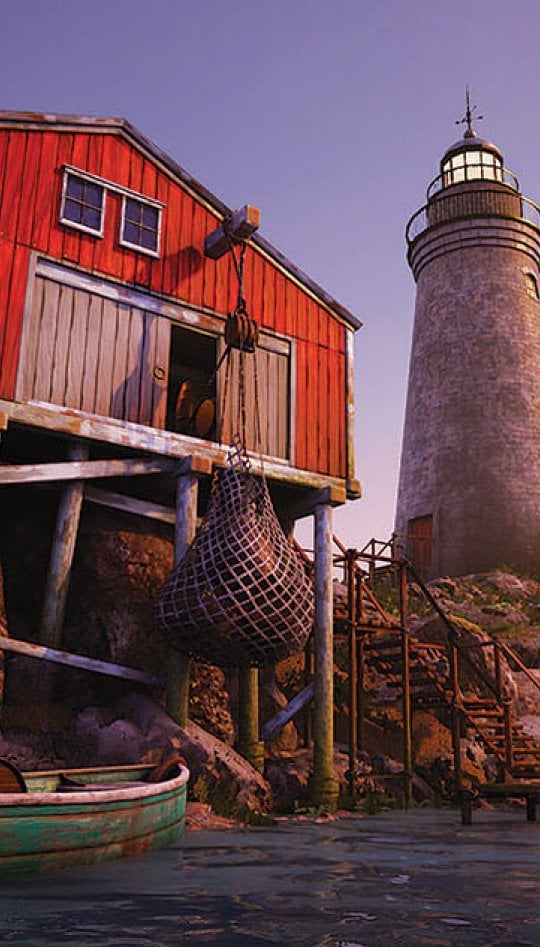
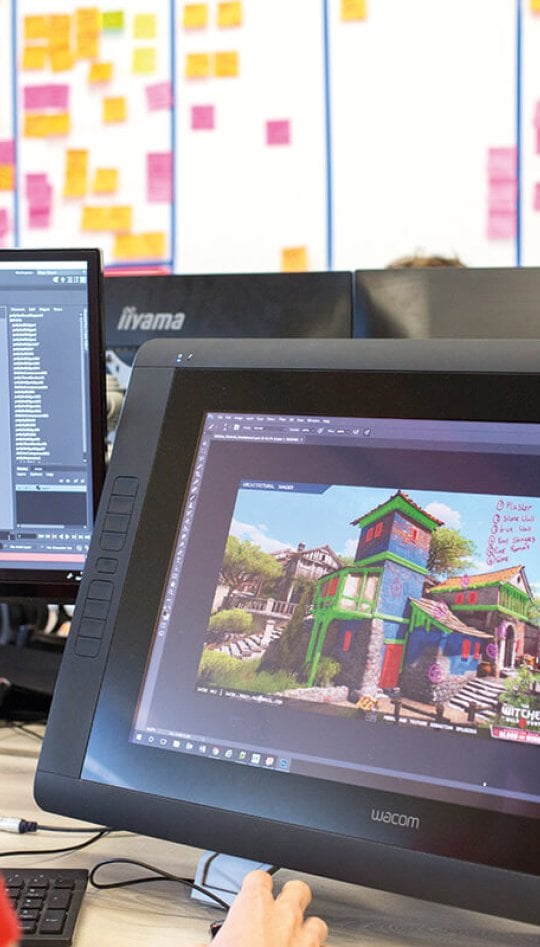
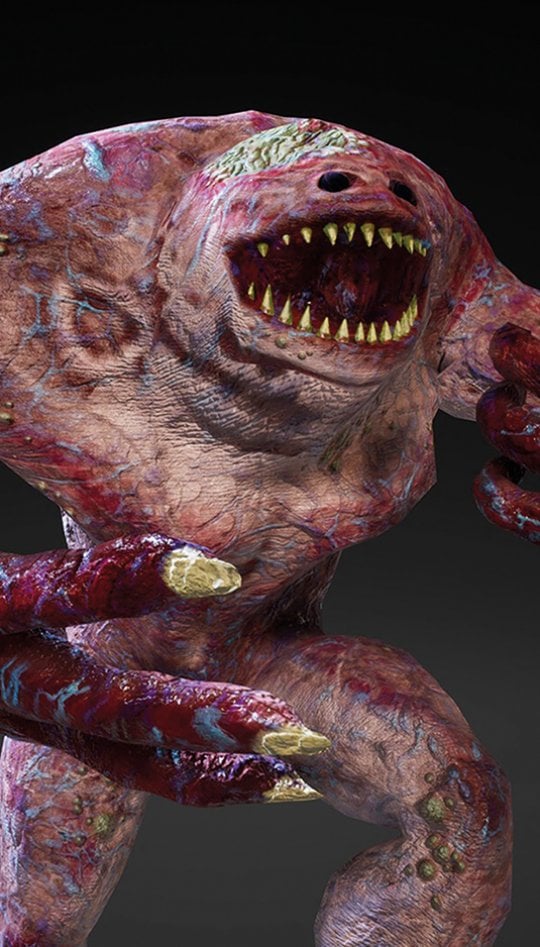
Game Development BA(Hons)
Master game development skills while specialising in your chosen discipline.
Course overview
We’re ranked as the number one university for game design in England (Princeton Review, 2025), and we take that accolade very seriously. On this Game Development degree, you’ll establish your specialism within the field, gaining industry-level technical, creative and professional skills within an environment that mirrors a real games development studio. You’ll also work as you might in industry, learning to communicate and collaborate effectively as you operate in multi-skilled teams to develop your own games from the outset.
Why study this course at Falmouth?
- Build your own games from day one and have the opportunity to establish your own company in your third year
- Work in one of the largest and best-equipped dedicated game-making spaces of any university in the UK
- Learn in a department dedicated to gaming and be surrounded by people working in all aspects of the industry
- Develop a multidisciplinary approach, using Unity and Unreal to touch upon all aspects of game creation
- Showcase your work to industry leaders through our annual Games Expo and gain professional insights via guest lecturers
- Have the flexibility to change your area of specialism based on your skills and interests
Lead images: Louis Sullivan, Repeater Roulette by Average Soup.
Overviews of each specialism
Overview
Get into teams from the start to learn core game art abilities, such as environment modelling and game engine integration, using industry-standard packages, processes and pipelines.
Course routes
On this Game Development: Art degree, you'll have the opportunity to gain a BA(Hons) degree over three years or the option to study Game Development: Art BA(Hons) with Integrated Foundation Year and/or professional placement study options.
From module information to course aims and assessment criteria, discover the full course details:
- Three year degree
- Four year degree with Integrated Foundation Year
- Four year degree with professional placement
UCAS codes
- BA(Hons) 3 year: W281
- Integrated Foundation Year BA(Hons) 4 year: FY02
- Professional placement BA(Hons) 4 year: PY29
Overview
Prototype and implement the rules, systems, puzzles and levels that shape player experience, iteratively testing and refining them.
Course routes
On this Game Development: Design degree, you'll have the opportunity to gain a BA(Hons) degree over three years or the option to study Game Development: Design BA(Hons) with Integrated Foundation Year and/or professional placement study options.
From module information to course aims and assessment criteria, discover the full course details:
- Three year degree
- Four year degree with Integrated Foundation Year
- Four year degree with professional placement
UCAS codes
- BA(Hons) 3 year: W284
- Integrated Foundation Year BA(Hons) 4 year: FY28
- Professional placement BA(Hons) 4 year: PY31
Overview
Become a gameplay programmer who implements and tests core game mechanics and evaluates how players interacts with them.
Course routes
On this Game Development: Programming degree, you'll have the opportunity to gain a BA(Hons) degree over three years or the option to study Game Development: Programming BA(Hons) with Integrated Foundation Year and/or professional placement study options.
From module information to course aims and assessment criteria, discover the full course details:
- Three year degree
- Four year degree with Integrated Foundation Year
- Four year degree with professional placement
UCAS codes
- BA(Hons) 3 year: W285
- Integrated Foundation Year BA(Hons) 4 year: FY30
- Professional placement BA(Hons) 4 year: PY33
Overview
Create backstories, dialogue, quests and player journeys, learning to translate foundational writing skills into narrative design for games.
Course routes
On this Game Development: Writing degree, you'll have the opportunity to gain a BA(Hons) degree over three years or the option to study Game Development: Writing BA(Hons) with Integrated Foundation Year and/or professional placement study options.
Modules may be taught across Penryn and Falmouth campuses. From module information to course aims and assessment criteria, discover the full course details:
- Three year degree
- Four year degree with Integrated Foundation Year
- Four year degree with professional placement
UCAS codes
- BA(Hons) 3 year: W286
- Integrated Foundation Year BA(Hons) 4 year: FY31
- Professional placement BA(Hons) 4 year: PY34

Course details
You'll get a feel for all the skills and disciplines in game development, before specialising in one of five routes – but you'll have the flexibility to change your route at any point during your first year. You'll then progress from small tasks to games with a more challenging scope as you take on team-led projects.
Course study options
You can gain your Game Development BA(Hons) degree in three years or choose to add an Integrated Foundation Year and/or professional placement year. Discover the full course details for each study option, below.
- Three year degree
- Four year degree with Integrated Foundation Year
- Four year degree with professional placement
Meet Thomas, a third-year Game Development (Writing) student at Falmouth University, as he shares the story behind his final-year project Fireside Fables.
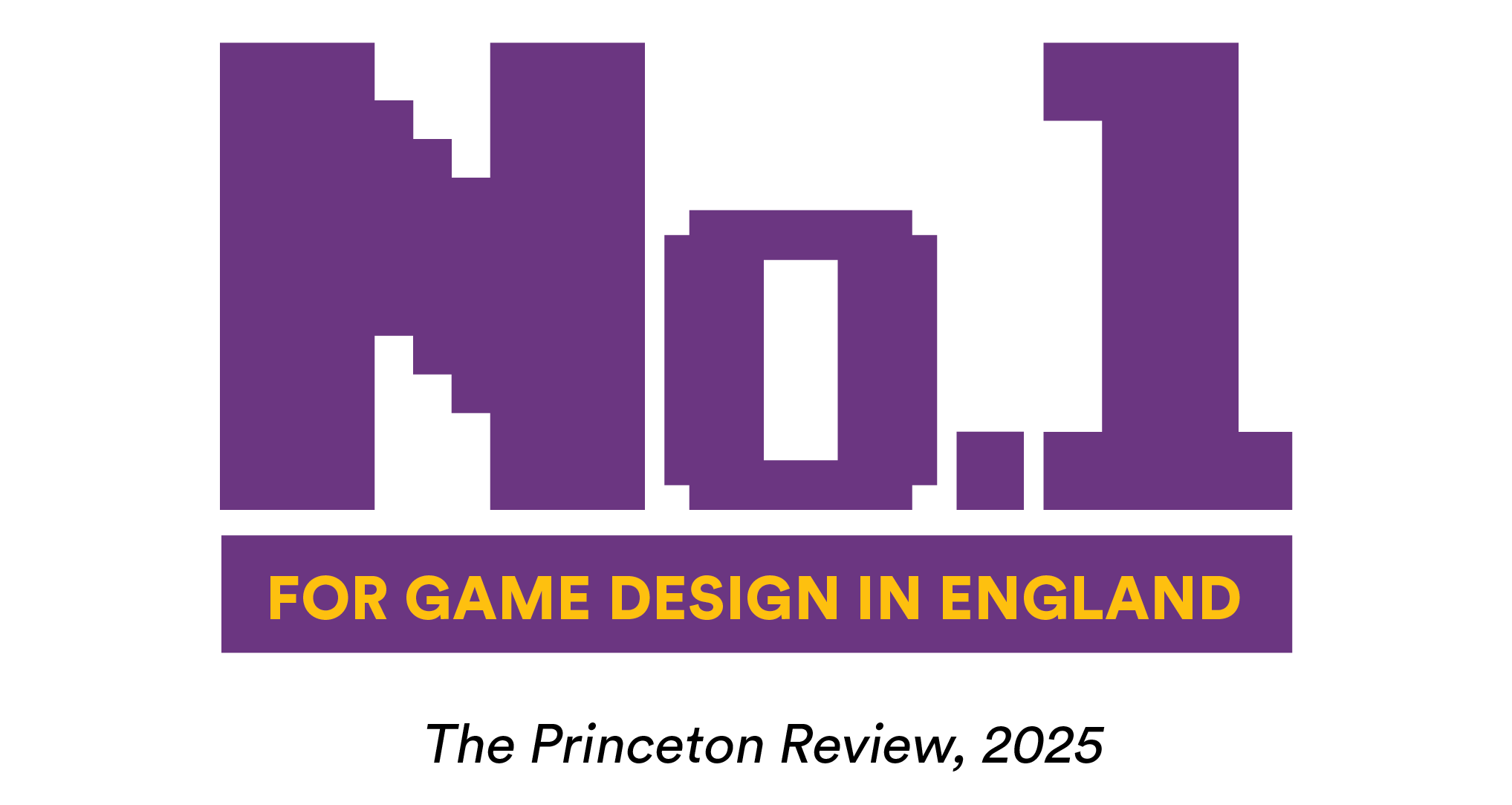
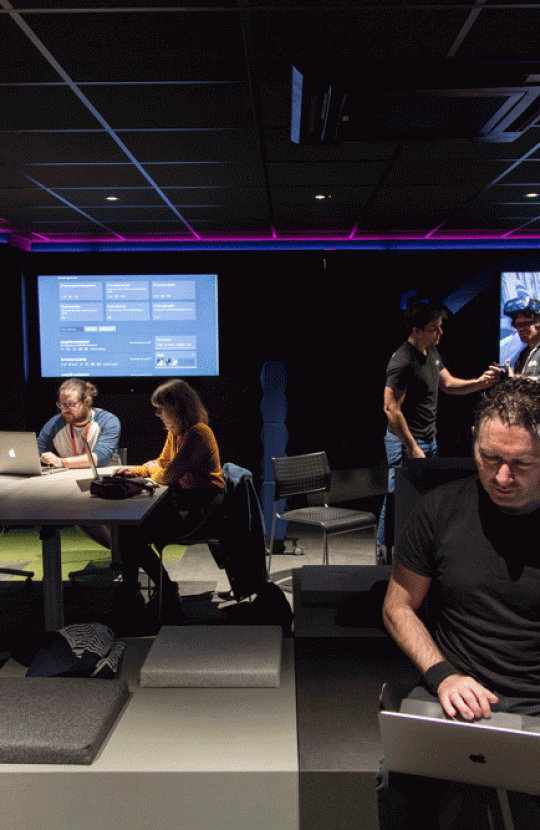
Virtual tour
Discover where you’ll spend your time as a student with our 360° tour, showcasing our facilities, accommodation, town and scenery.
Year one
You'll learn what it takes to make a game, including game creation, project management and pipelines, pitching ideas and considering theories about what games are and how they engage players.
Modules
Development Foundations
Through several small-scale team projects, you’ll learn the basic principles, terminology, roles and tools used in the development of digital products and services. You’ll then develop a pitch that will inform the project you’ll pursue in the Multidisciplinary Teamwork module.
Digital Creativity
In this module, you’ll explore and experiment with digital media formats, including text, image and sound. You’ll transform an existing digital artefact into a new form, as a means of appropriation, before integrating it with digital game technologies to make them interactive.
Multidisciplinary Teamwork
In this module, you’ll work in a multi-skilled team to make a digital product or service in response to a prompt and some constraints. You’ll deepen your knowledge of organising a software development project as well as learning how to work with people from different backgrounds, and across different disciplines, towards a shared deliverable.
Reading Games*
In Reading Games, you’ll begin to think closely and carefully about the formal nature of digital experiences; their markets, the contexts of their production and player experience.
*Game Development: Programming students will study Data Fundamentals instead of this core module.
Environment Art 1
In this module, you’ll learn the basic principles of environment art for games. You’ll generate environment art in a game context using digital tool sets to produce high-definition assets for use in the game development pipeline.
Through this work, you’ll consider scene setup, planning, modelling methods and reference gathering, as well as UV mapping, texture creation, materials and shading.
Environment Art 2
Through a series of practical engagements, you’ll develop the skills you need to create technically accurate and exciting environment art suited to games. You’ll learn about working in accord with hardware limitations, exporting pipelines to a game engine, baking methodologies for game assets, texturing techniques for games, rendering, lighting and shadows. You’ll also continue to build on your understanding of the underlying principles of environmental art within a 3D game context.
Game Design 1
In this module, you’ll be introduced to game design practice. You’ll critically evaluate various established game designs, learn the techniques and principles of crafting rules to deliver authored gameplay experiences, and gain a deeper understanding of the role of a professional game designer.
Game Design 2
In this module, you’ll explore and practice more advanced level design techniques using the most recent professional game development environments. You’ll learn to design, create, test and refine your game’s user experience and level designs. You’ll also explore the role of level scripting in the games industry by adding interactivity and puzzle-like elements.
Principles of Computing
In this module, you’ll learn the principles of computing, discrete mathematics, statistics and technical communication. Through a series of tasks, you’ll begin to use core computer science concepts, techniques and methods to solve practical problems and leverage algorithms in your solutions.
You'll also delve into the history of computing, engaging with the plurality of voices in the profession and the controversies evoked by algorithmic bias.
Individual Programming Project
In this module, you’ll refine your approach to computer programming by developing an architecturally sound project focused on object-orientated solutions.
Through this project, you’ll build confidence with various interfaces that enable interaction within and across different system components. You’ll also boost your awareness of ethical considerations such as safety, accessibility, sustainability, and the impact of supply chains.
You’ll also practice more disciplined software engineering methodologies, develop your mastery of the notations for describing and refactoring system architectures, and apply the mathematics associated with circuit design.
Data Fundamentals
In this module, you’ll learn the fundamentals of the data science life cycle. This will include learning how to formulate questions, collect and clean data, explore and visualise data, make statistical inferences and predictions, and report insights in a way that informs decision making.
You'll also gain an awareness of the responsibilities, obligations, and legalities of working with sensitive and personal data including its collection, storage, analysis, management, and transmission.
Writing: Crafts & Contexts
Through debates and written assignments on writing, authorship, genre, creativity and audience, you’ll explore the practice of writing as a discipline and a craft. You’ll also develop critical skills, strategies for writing to deadlines and an understanding of the cultural context and traditions writers and readers work within.
Breaking the Rules: Remix & Writing Back
This is a challenging and radical creative writing module covering remix and writing back in theory and practice. Using all kinds of texts as source material, you’ll be supported to break the rules and experiment with reversionary writing, collage, reviewing, adaptation, pastiche and parody. You’ll also consider genre, information content, point of view, tone and context.
Year two
With greater confidence in your skills, you'll mirror professional game development as you tackle a larger game project in a multi-skilled group. Over the course of the year, you'll research and experiment with various approaches and create innovative features. You'll investigate strategies to enhance the player experience and discover what drives industry trends and developments from guest speakers. All the while, you’ll develop the specialist skills that will inform your practice.
Modules
Game Form & Player Experience
In this module, you’ll explore theoretical approaches and concepts that are used to comprehend the relationship between game form and player experience. You’ll learn about and reflect upon ideas that seek to illuminate why players play, and why they find ‘ludic’ experiences pleasurable.
World Building: Pre-Production
In this module, you’ll work in a multi-skilled team on a digital ‘world creation’ project that you’ll continue to develop throughout the year. Through the project, you’ll get hands-on experience of world-building and exploratory concept work, prototyping, pre-production and early phases of production.
World Building: Production
You’ll continue work on your collaborative ‘world creation’ project, delivering content in line with production milestones and the processes involved in preparing to release your world and reach your intended audience.
Portfolio Development
In this module, you’ll work on a self-devised portfolio piece with a view to submitting it to an industry competition.
From researching to execution, you’ll hone your skills and gain confidence as you develop your project within your chosen specialism. Experimenting with different techniques, you’ll build your portfolio and create a piece of work that conforms to industry norms.
Developing Concept Art Vocabularies (option)
In this module, you’ll bring your existing understanding of concept art and visual culture into a production context. Working within a team on a practical project, you’ll develop your 2D skills, explore new and experimental media and investigate methodical approaches to making concept art in greater depth. You’ll also expand your ability to use appropriately relevant software, tools and materials, including collage and digital speed painting as well as new 3D approaches.
Developing Character Art Vocabularies (option)
This module provides a more advanced study of character art creation for games. You’ll refine your experience with relevant software, tools, and pipelines; sharpen your observational skills and your understanding of human anatomy through life drawing; and further your understanding of development pipelines and processes.
Developing Environment Art Vocabularies (option)
You’ll research and explore techniques and practices in the creation of environment art for games. Focusing on an identified area of interest, you’ll develop a research brief proposal before responding with a portfolio and a written analysis of that work. As ever, you’ll be encouraged to experiment and test out different techniques and approaches.
Level Design
In this module, you’ll learn to create game levels, from initial concept through blockout and finally using modular kits.
You’ll look at designing enclosed and open world environments using different techniques from blockout to modular design. Through the process, you’ll investigate how to include game mechanics, narrative and sound design into your level builds. You’ll discover how quest design and environmental storytelling can influence the narrative of a game, as well as examining how audio can provide a sense of space for your players.
Game Design 3
In this module, you’ll extend and advance your technical and creative understanding of game design by working on a basic game prototype that tests specific game mechanics. You’ll also define this mechanic fully within a Technical Design Document (TDD), which acts as a communication tool between the designer and the rest of an implementation team.
Level Design
In this module, you’ll learn to create game levels, from initial concept through blockout and finally using modular kits.
You’ll look at designing enclosed and open world environments using different techniques from blockout to modular design. Through the process, you’ll investigate how to include game mechanics, narrative and sound design into your level builds. You’ll discover how quest design and environmental storytelling can influence the narrative of a game, as well as examining how audio can provide a sense of space for your players.
Advanced Game Programming
On this module, you’ll learn more about the different areas of game programming through the process of producing a game from scratch. Through this, you’ll deepen your knowledge and understanding of languages and framework fundamentals as well as game engine architecture. You’ll also touch on artificial intelligence (AI) and will be challenged to incorporate it into your game or your game development process. Through this, you’ll consider how AI might impact society in the future.
Level Design
In this module, you’ll learn to create game levels, from initial concept through blockout and finally using modular kits.
You’ll look at designing enclosed and open world environments using different techniques from blockout to modular design. Through the process, you’ll investigate how to include game mechanics, narrative and sound design into your level builds. You’ll discover how quest design and environmental storytelling can influence the narrative of a game, as well as examining how audio can provide a sense of space for your players.
Writing for Games
This module introduces you to the craft of writing for games. How do established narrative techniques apply and adapt to interactivity? What does it mean to write for an active audience? What new storytelling methods are evolving to account for player agency?
You’ll critically consider everything from small indie titles to AAA blockbusters, mixed reality to immersive experiences, to help you unpack the writing and narrative design methods you can use in your own games.
Year three
During the final year of your Game Development degree, you'll produce a complete and potentially publishable game as part of a team. By pitching it to industry professionals, you'll receive reliable and insightful feedback. You'll also research a topic relevant to your project and build an online portfolio with a clear centrepiece, sharpening your real-world insights and building valuable career contacts.
Modules
Experience Design
In this module, you’ll be challenged to create an experience that showcases your specialist skills. This could include, but is not limited to, user experience design, writing projects for new media, a short but novel media experience, animation or graphical assets for specific media experience.
Future Skills
Focusing on employability, you’ll develop a commercial awareness and entrepreneurial mindset.
You’ll explore career options, including researching the skills required to set up your own business, establish yourself as a freelancer, or for use as an employee in a business or organisation.
You'll also devise a group project around enterprise opportunities. Practical learning will be consolidated through critical reflection as you develop the ability to translate skills for an external challenge-led context.
Professional Portfolio
You’ll consolidate and showcase your specialist skills and knowledge through the production of an industry-ready portfolio. You also receive portfolio, CV and career development guidance.
Future of Games
You’ll explore how cultural and technological changes might influence the way games are made and played in future. You’ll critically examine various aspects of contemporary games and digital culture, confronting issues relating to sustainability and ethical production, equality and civil rights, and personal identity and ideology, among others.
Major Collaboration
In this module, you’ll leverage your experiences and skills to deliver a substantial collaborative project. Working in a multi-skilled team, you’ll design and implement a digital product or service, such as an enterprise solution, mobile app, installation, game, web application, immersive experience or software development tool.
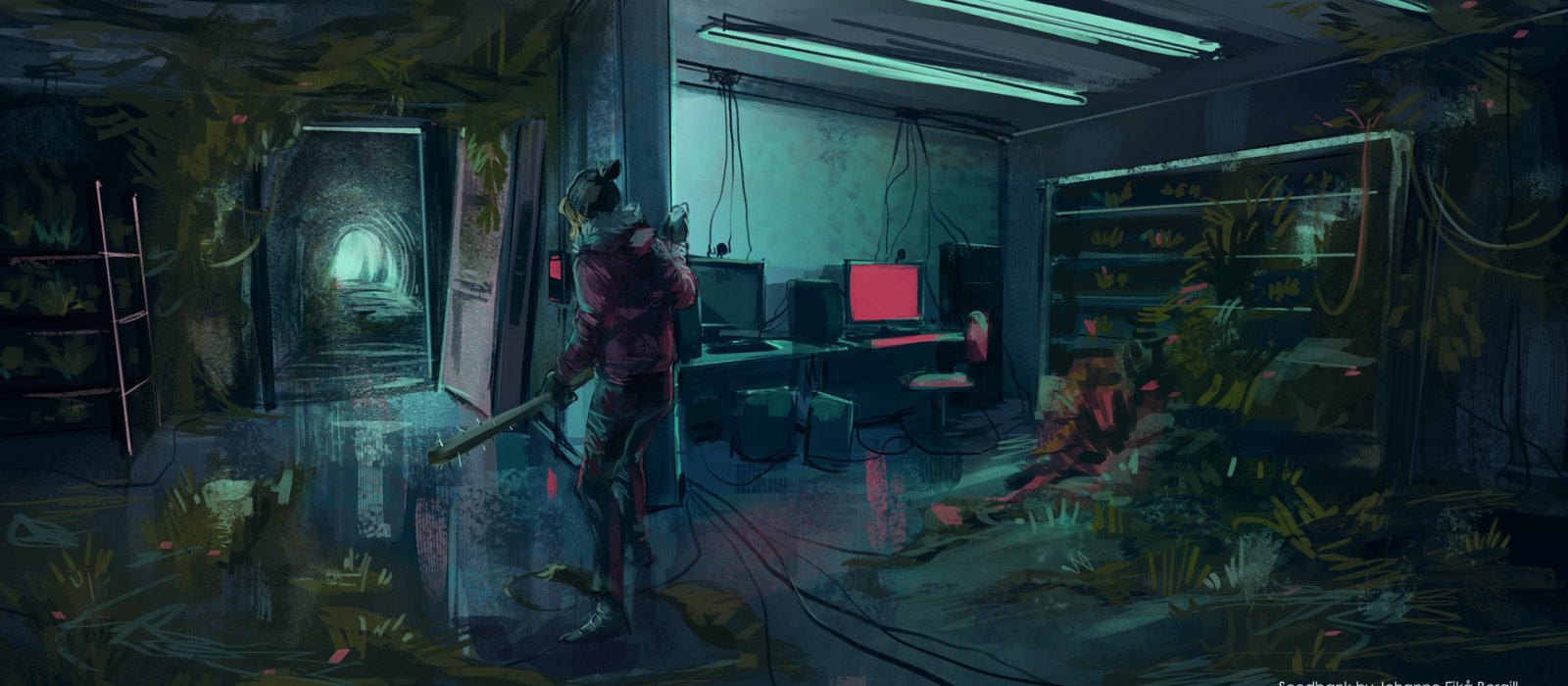
Additional routes
Why study an Integrated Foundation Year route?
If you’re taking on a new subject that you haven’t studied in depth before, have been out of education for a while or have a non-standard educational background then an Integrated Foundation Year degree may be the right choice for you. It is a four-year degree with an Integrated Foundation Year to start, which allows you to explore the primary elements of your subject before progressing on to the remaining three years of the BA(Hons) degree.
What you'll learn
If you choose this pathway, you'll study five core modules in your Foundation year. These are all designed to help you explore the foundational elements of your subject. You'll gain relevant technical skills, learn to experiment and take risks, develop an understanding of professional practice, have opportunities to work across disciplines and collaborate with other students on live project briefs.
Modules
Explore
You'll begin your foundation year by working collaboratively with others to explore themes of the future. You'll take risks, experiment through play and be supported to break through barriers.
Technique
You'll take subject-specific workshops and develop essential technical and practical skills in your area of study. You'll also enhance your analytical and organisational abilities.
Apply
You'll work with your peer group to think beyond discipline by addressing a societal or global issue. You'll then showcase your work to your peers and deliver and accompanying evaluation of your process.
Industry
You'll enhance your creative and practical skills in your subject specialism by responding to typical industry briefs, underpinned by focused research and experiments. You'll also gain industry insights through guest lectures and workshops.
Launch
You'll develop your unique identity in your specialism through the production of a self-initiated body of work. Your final project will be the bridge to your next year, fully supported by evaluative reviews and critical analysis of the work you have created.
After the Foundation year, you progress into Year One of the full three-year degree, equipped with a deeper knowledge of your subject, a clear understanding of your strengths, and develop a practical and technical skillset and the confidence to excel in your chosen subject.
If you apply for and enrol onto a degree with an Integrated Foundation Year, you’ll have the option to switch onto a five-year version including a placement year. That means you’ll complete the first three years of your course before completing a placement in industry in your fourth year and returning to Falmouth for the fifth year of your programme.
You can choose to take an optional professional placement after your second year on a three-year programme, or after your third year if you’re studying for a degree with an Integrated Foundation Year.
You’ll be responsible for finding your own placement, with support from the Employability team.
Choosing this option will enhance your industry experience and skills while studying.
How you’ll study during your professional placement
You’ll spend time working in a professional context, as part of a business or organisation. This can be in one role, or up to three, and must be for a minimum of 24 weeks.
You’ll develop in-demand workplace skills, deepen your insight into industry and grow your network of contacts, all of which could help you get ahead in your career after graduation.
Throughout this year, you’ll develop a portfolio of work that includes critical self-reflection on what has been learned from the experience. You’ll be required to evidence your experiences, the skills you’ve learned and your professional growth.
As part of our process of continuous improvement, we routinely review course content to ensure that all our students benefit from a high-quality and rewarding academic experience. As such, there may be some changes made to your course which are not immediately reflected in the content displayed on our website. During your course, module content may be updated or optional modules withdrawn in order to maintain the best academic experience. Any students affected will be informed of any changes directly.
Explore the games our students have created
Our Game Development students are doing-it-for-real, whether that's game art, programming, writing or design. Check out our students' showreels, game trailers and artwork below for a taste of what they get up to. Visit Our Games page to find out more.
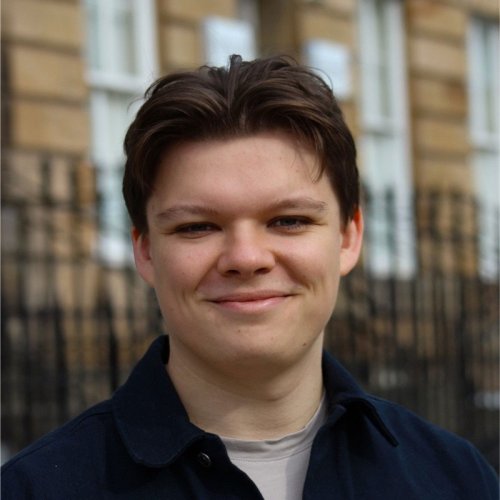
From studying Game Development to designing on F1 Manager
For Elliot Griffiths, the Game Development: Art (BA)Hons course at Falmouth was where he discovered a love of cross-disciplinary teamwork and began building the portfolio that would land him a job just one week after graduating.
Now a Lead Artist at Frontier Developments, we caught up with him to find out more about his time at Falmouth, what it’s been like working on the F1 Manager series, and the games he enjoys playing in his spare time.
Read moreHow you'll learn & be assessed
You'll create original games through group work, professional practice and Game Jams. You'll also develop practical skills through practice-based workshops and learn to evaluate and improve your work through group tutorials, crits, and individual tutorials.
You'll share specialist first-year modules with other Games Academy courses.
At Falmouth, we use a 'digitally enhanced learning & teaching' approach. Your experience will always be predominantly in-person, including seminars, tutorials and studio teaching, with some, more targeted elements, being online either live (synchronous) or pre-recorded (asynchronous). You can read more here.
100% of your assessment will be coursework.
Assessment methods
Designed to mirror industry practice, students are continuously assessed on group projects through a group working strategy. Further assessment methods could include:
- Foundation year assessments are 100% coursework based
- Game making
- Visual, verbal and written assignments
- Portfolio of project work
Facilities
- Large studio equipped with regularly updated, state-of-the-art game development machines.
- Rokoko Smartsuit Pro 2 motion capture suits, including Smartgloves and Face Capture
- Life drawing studio for artists and weekly life sessions.
- Specialised computing hardware for game development, deep learning projects, motion capture and immersive experiences.
- Standard packages used in software development for the games and visual effects industries, including Adobe and Autodesk suites.
- Attached lab committed to staying at the cutting edge - featuring augmented reality, virtual reality AR/VR/MR (XR) equipment including HoloLens, HoloLens 2 and Meta Quest 3 & 2.
- Attached lab with access to PS5 development and testing kits.
- Access to a variety of game engines including Unity and Unreal.
- Studios open late during term time.
- Access to free software.
Stories from our community
Explore student projects, graduate successes, staff news and industry insights

Game Development graduate on making retro games and his YouTube following
29 January 2026
From building minigames in LittleBigPlanet as a teenager to releasing homebrew (unofficial hobbyist)...
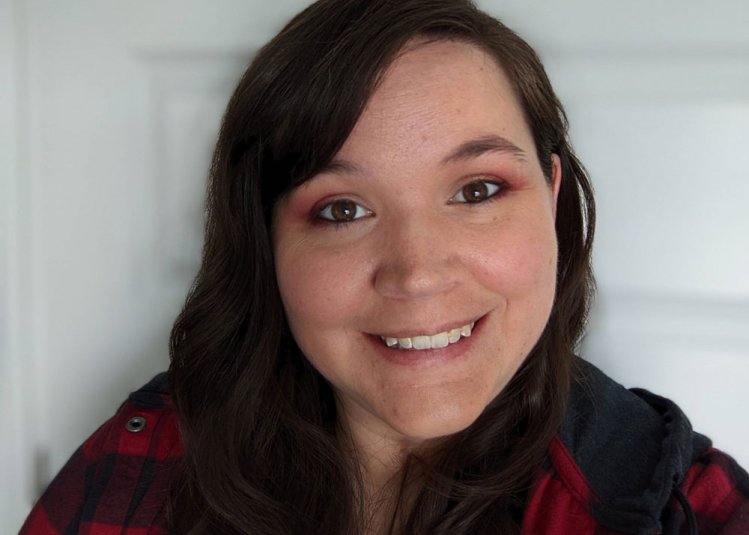
Why I returned to study an Indie Game Development master’s while teaching
27 January 2026
After years working across games and education, Jess Bradshaw chose to return to study with a clear ...
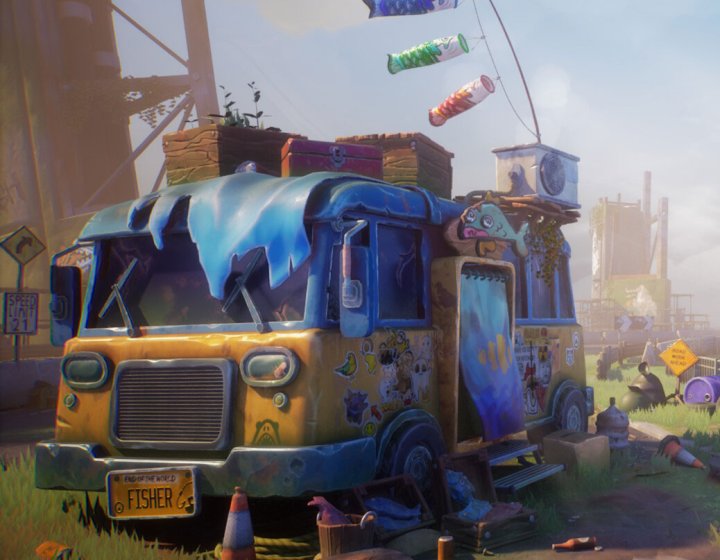
Game Art graduate reaches finals in international team challenges
20 January 2026
BA(Hons) Game Art and MA Game Art graduate Eden Gates has reached the finals of two team-based game ...
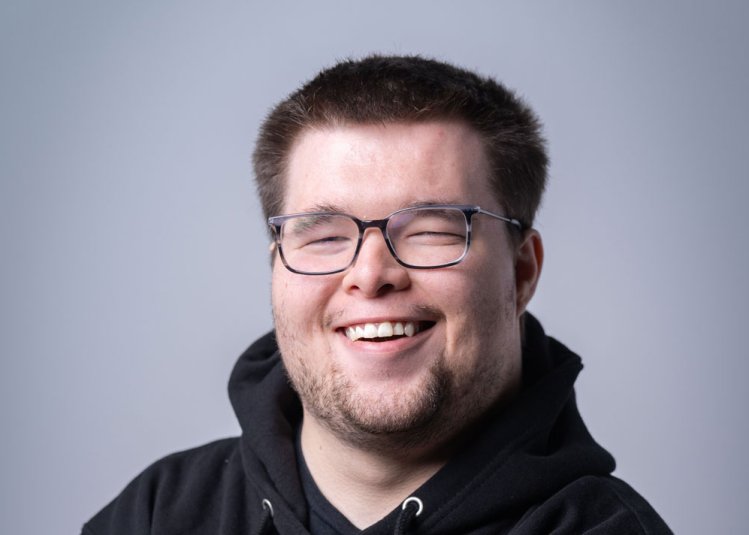
Game Development Writing graduate builds career in community management
25 November 2025
For Liam Gregory, studying Game Development: Writing BA(Hons) at Falmouth opened the door to far mor...
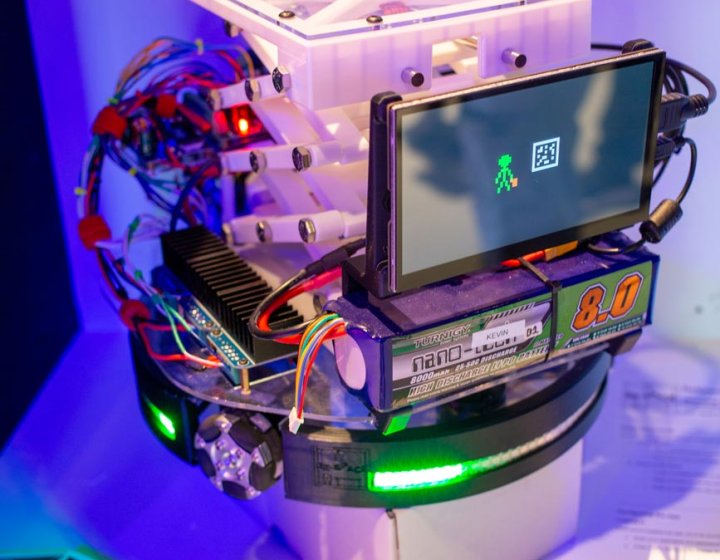
What is Creative Computing?
24 November 2025
Senior Lecturer in Computing, Matt Watkins explores what creative computing is and how it’s transf...
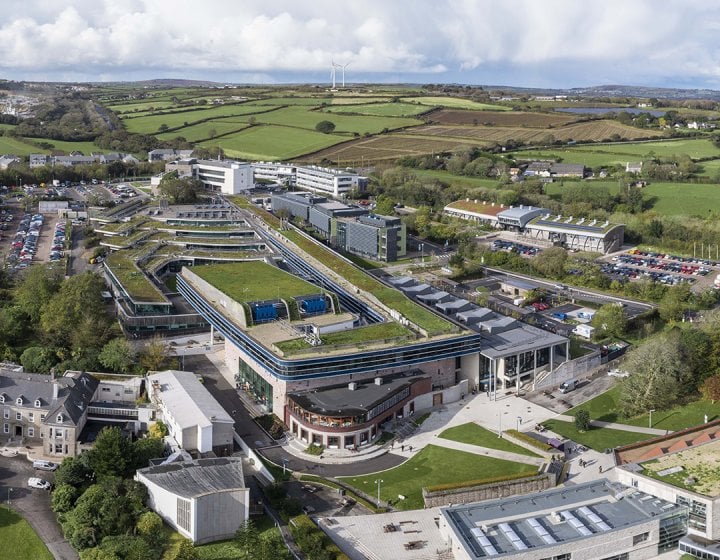
Falmouth University awarded £1.4m to power the future of creative design and manufacturing
18 November 2025
New state of the art design and advanced manufacturing facilities for students at Falmouth Universit...
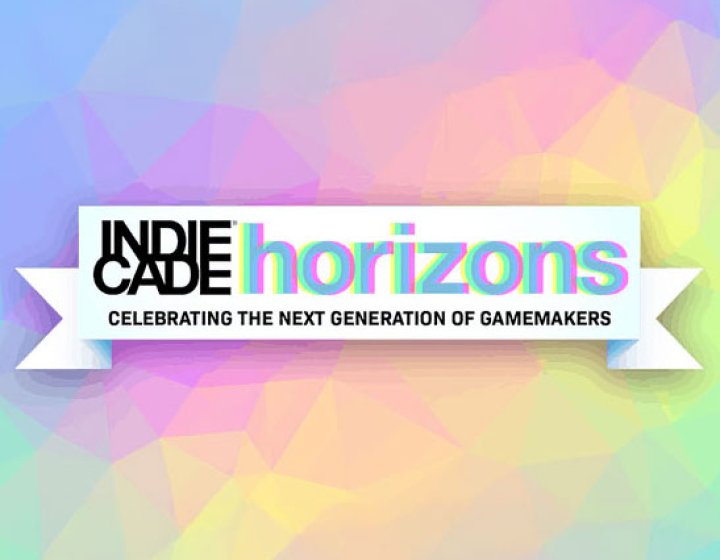
Dr William Huber honoured with Horizons Faculty of Excellence Award
11 November 2025
Falmouth University’s Associate Professor of Game Studies, Dr William Huber, has received internat...
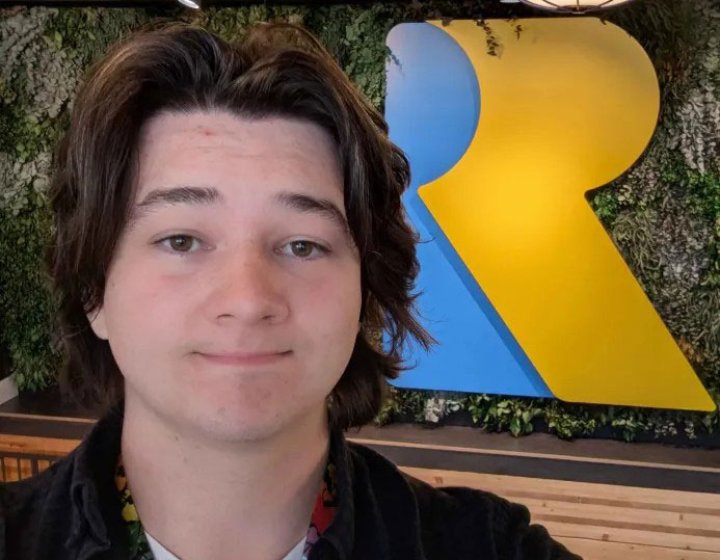
Game Animation student on joining renowned games studio
06 November 2025
Since graduating from Game Animation BA(Hons) at Falmouth, Brendon Chadwick has landed a dream start...
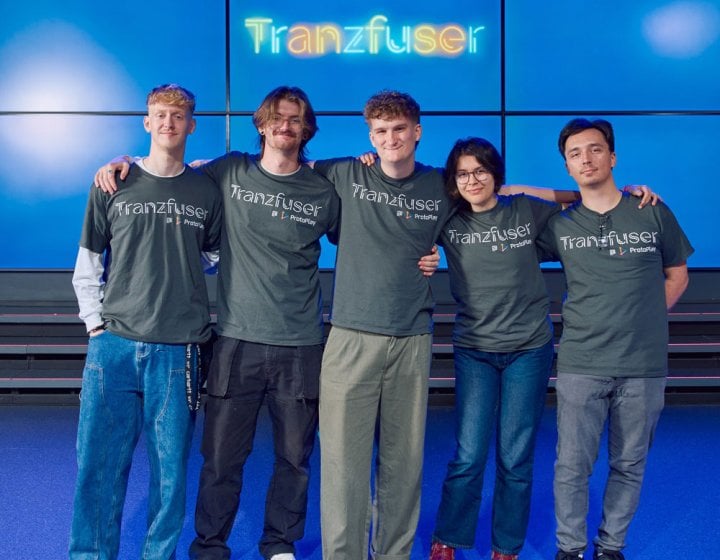
Games Academy graduates win national Tranzfuser competition
04 November 2025
Studio Whalefall, a team of Falmouth Games Academy graduates, is celebrating success after winning T...
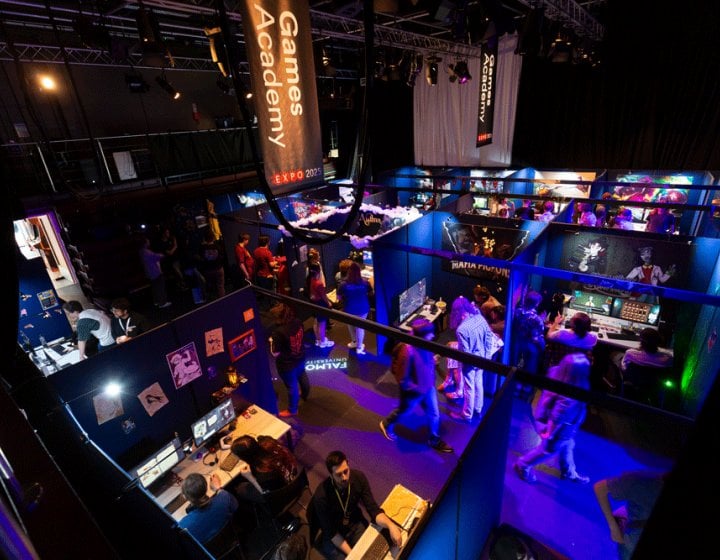
A catalyst for creativity and innovation: a decade of Falmouth University's Games Academy
21 October 2025
When Falmouth University launched its Games Academy in 2015, it did so with a bold premise: that gam...
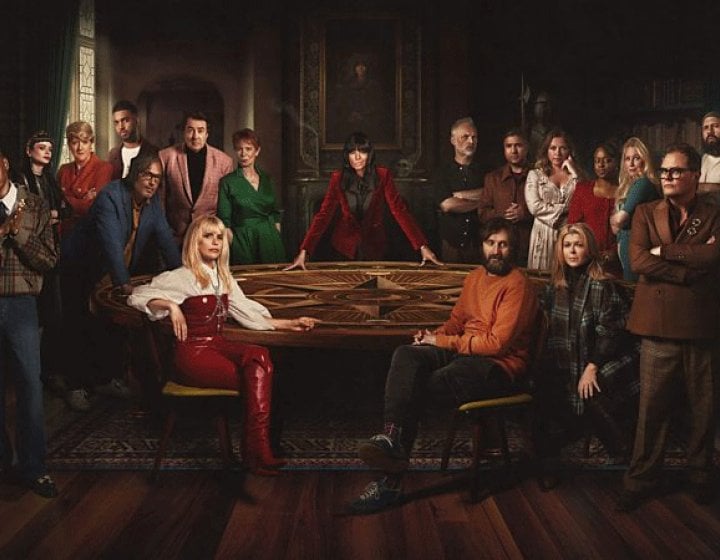
Playing the Game: What Celebrity Traitors reveals about strategy, authenticity and the self
16 October 2025
When The Traitors first appeared on television, few could have imagined that a game once played in t...
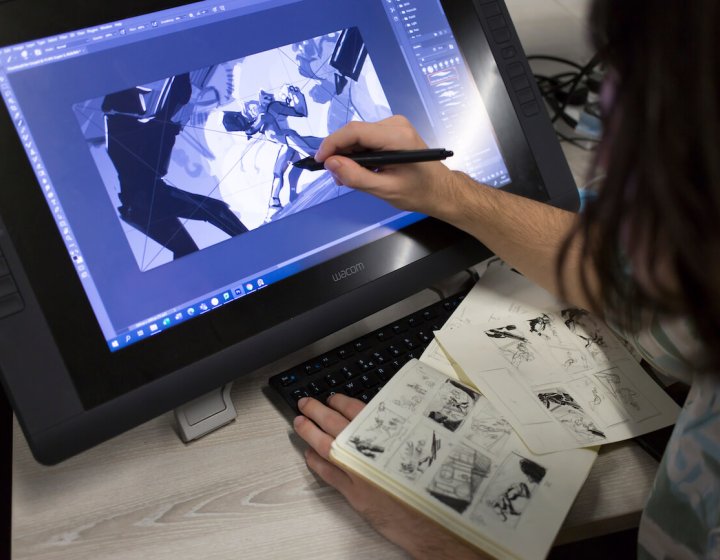
The difference between studying Game Art and Game Development: Art
15 October 2025
With two Game Art undergraduate degrees within the Games Academy, you might need a hand picking betw...
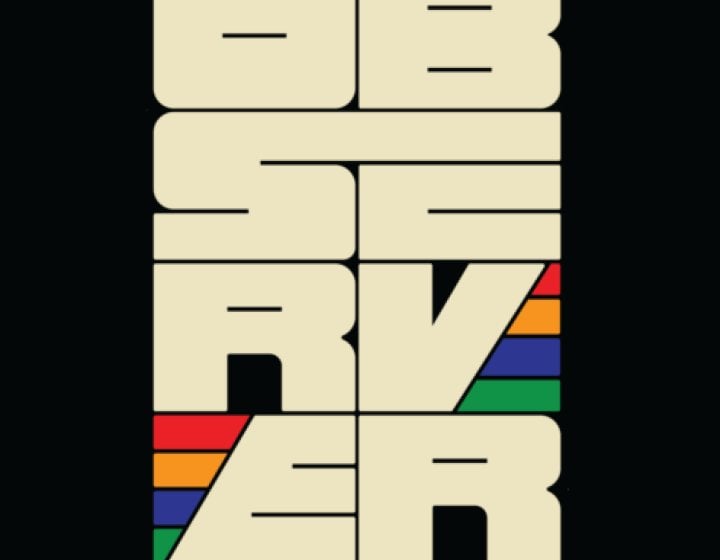
Lecturer’s game studio wins national award for championing games education
07 October 2025
Observer Interactive, the independent studio co-founded by Matty McGrory, Senior Lecturer in Indie G...
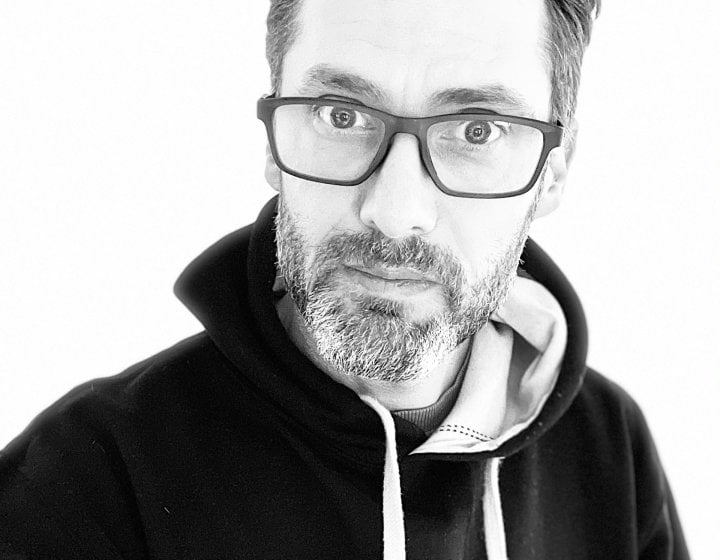
How a passion for cars led to a career in games and teaching Game Art
03 October 2025
Lee Walton’s route into games was anything but typical, moving from car design into roles at leadi...
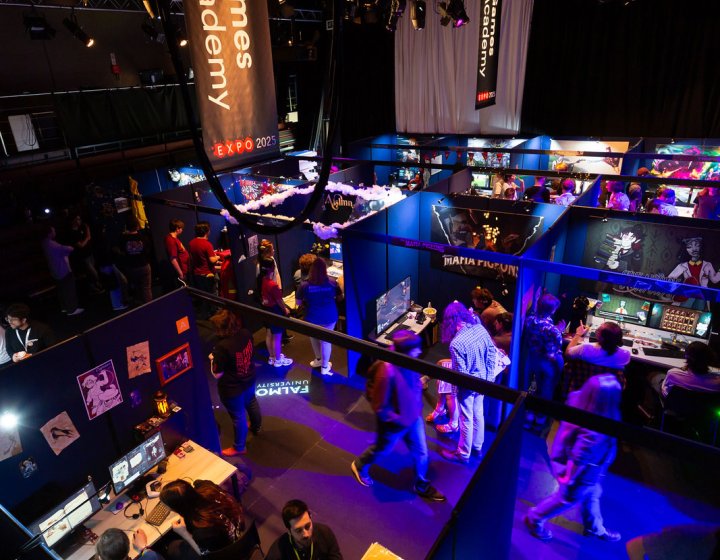
Forging Futures: How Falmouth University’s Games Academy became a catalyst for creativity and innovation
02 October 2025
When Falmouth University launched its Games Academy in 2015, it did so with a bold premise: that gam...
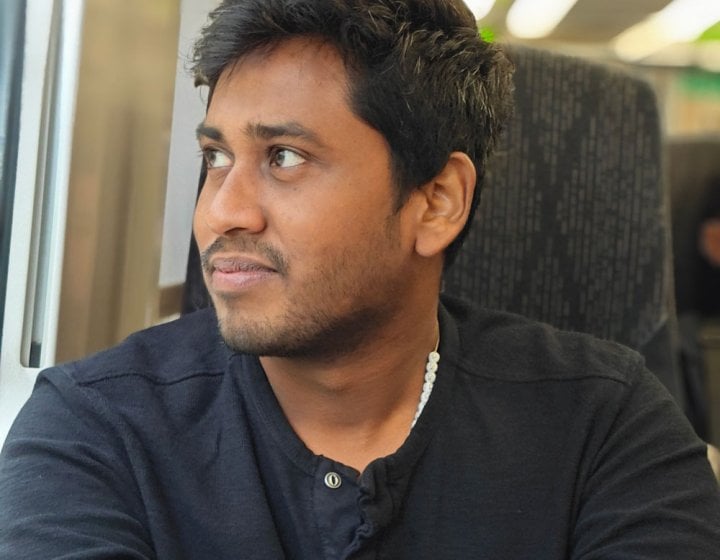
An international student’s journey on Falmouth’s MA Game Art
25 September 2025
For Anosh Saji, choosing to study a master’s in Game Art at Falmouth was about more than gaining s...
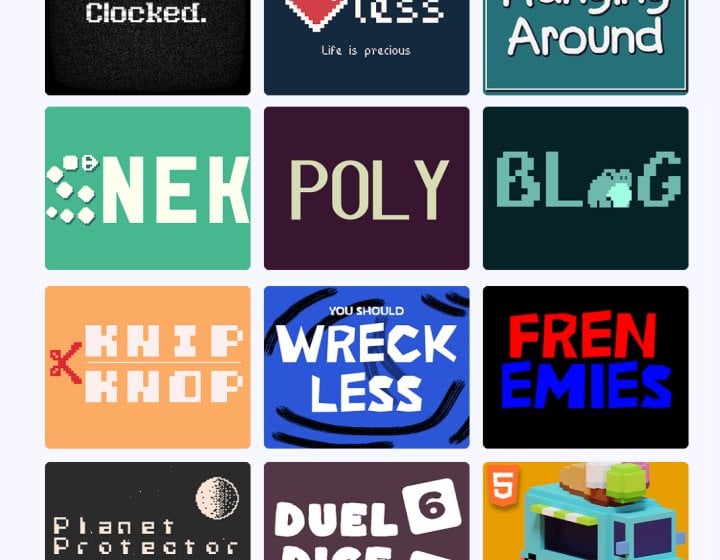
Indie Games Online student completes 12 games in 12 weeks project
23 September 2025
For his final major project on the Indie Game Development MA (Online), Mathijs Koning set himself a ...
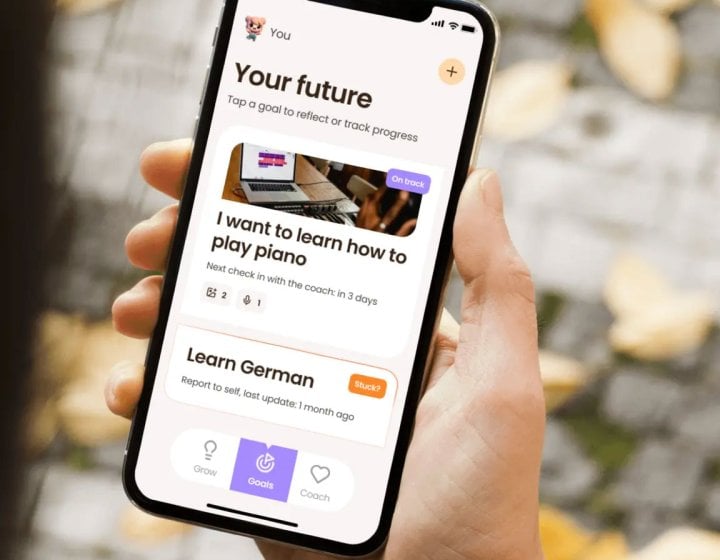
User Experience graduate on exploring scent, further study and starting a business
18 September 2025
When we think about digital design, we tend to think of screens, buttons and code. For User Experien...
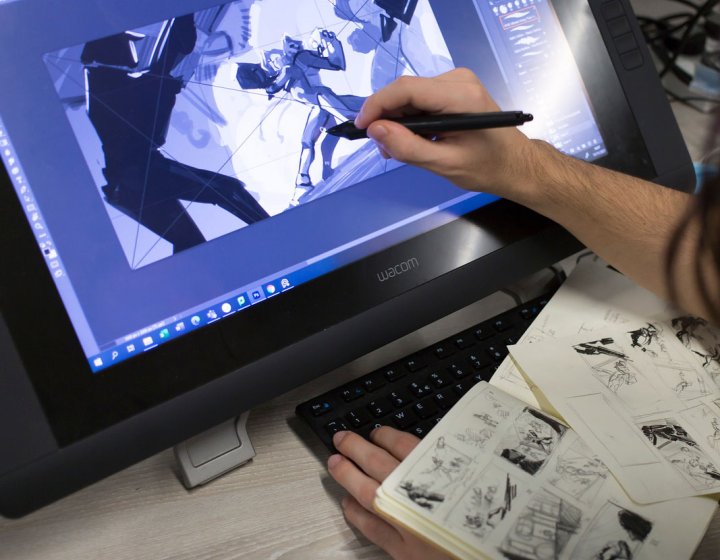
Game Art lecturer on character creation and collaboration
16 September 2025
We chatted with senior lecturer in Game Art, Michael Boylan, on how games are almost never made in i...
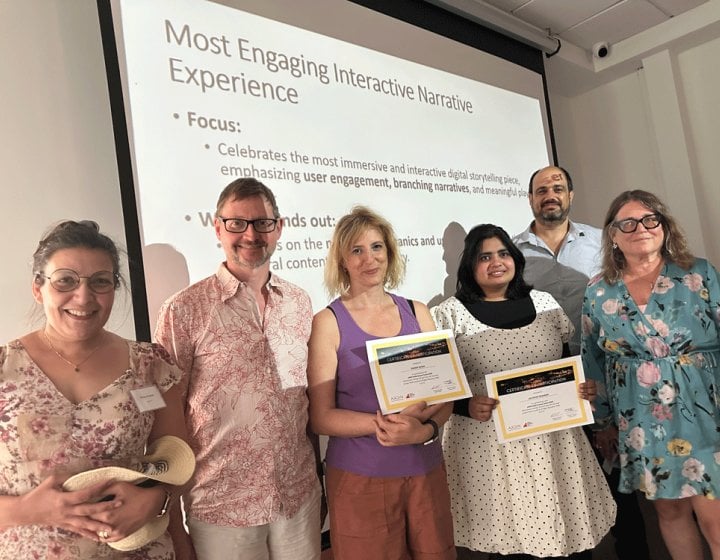
Meet the Game Programming lecturer at the cutting edge of interactive design
16 September 2025
Anjuman Shaheen, Lecturer in Game Programming MSc, has completed an intensive summer school in Malta...
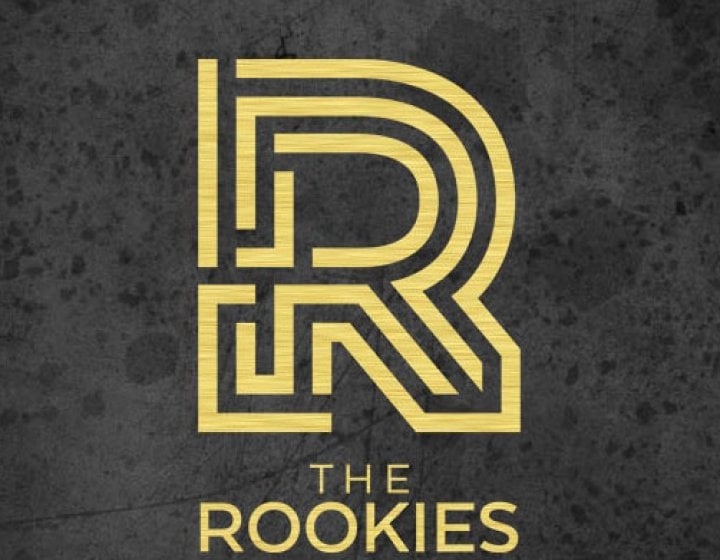
Games Academy students shine at The Rookies
12 September 2025
Five students from Falmouth’s Games Academy and School of Film and Television have reached the fin...
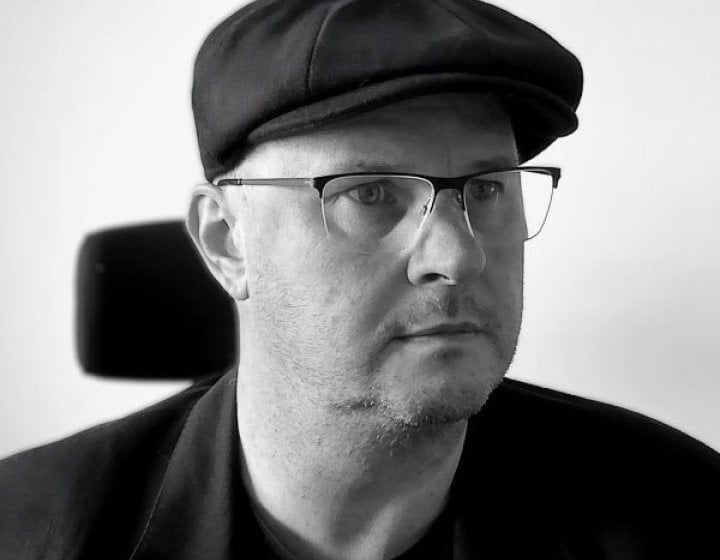
Game Art lecturer on his time in the industry and the future of games
12 August 2025
With a career that spans iconic titles like Tomb Raider: Angel of Darkness and GoldenEye 007, Associ...

Creating my first game on the Indie Game Development MA (Online) course
22 July 2025
Making a video game from scratch might sound like a huge challenge, and parts of it certainly are, b...

An Indie Games online graduate’s switch from teaching to developer
22 July 2025
After 10 years lecturing in computer games, Adam Harrison made the decision to study Falmouth’s In...

Game Art graduate brings private jet interiors to life in VR
10 July 2025
After developing core creative and technical skills on Falmouth’s BA and MA Game Art courses, from...
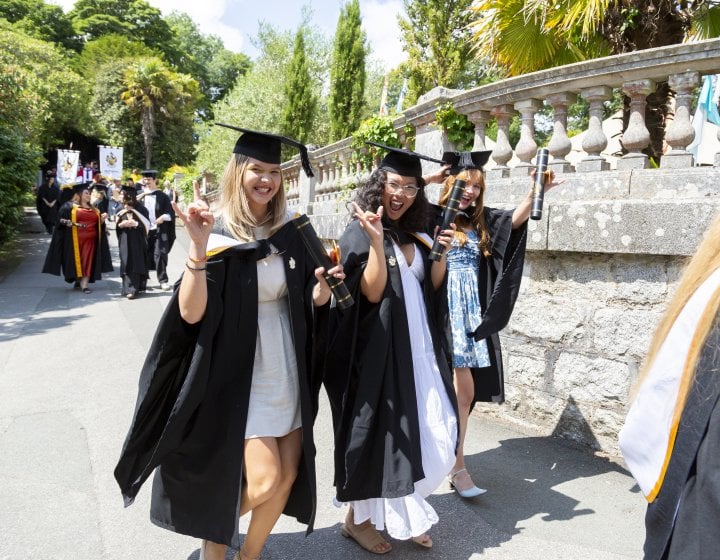
Graduation Success Stories: Where our 2024 graduates are now
04 July 2025
For more than a century Falmouth has shaped generations of artists, designers, makers and entreprene...

Robotics student develops innovative model for tracking climate change across ecosystems
03 July 2025
Cas Penfold, a third-year Robotics BSc student, has just completed her dissertation – a project th...

Indie Games lecturer reimagines 17th century France in new game
27 June 2025
Giovanni Rubino, a lecturer on Falmouth’s Indie Game Development MA (Online) course, has extensive...
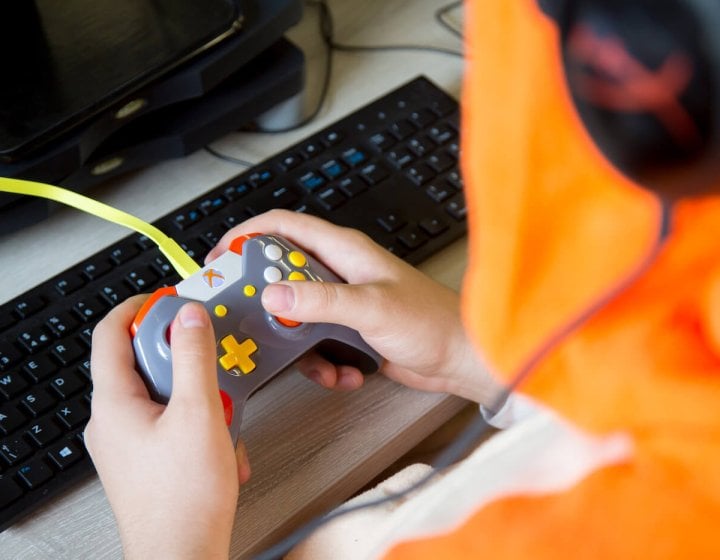
Why I chose to study Indie Game Development online
04 June 2025
Deciding what to study at university, and where, can be a massively daunting task, but my time at Fa...
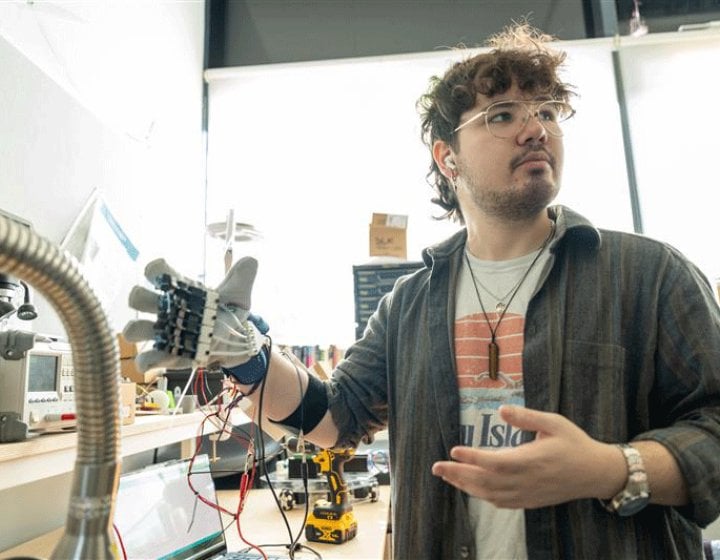
Robotics student creates a hand exoskeleton to help arthritis patients
04 June 2025
Josh Beckett, a third-year Robotics BSc(Hons) student, has created a hand exoskeleton that allows th...
This course could be for you if...
- You're passionate about games and want to learn to create them
- You're aiming to become a game animator in either the AAA or indie area of the industry
- You're looking for a course which mirrors industry with multidisciplinary teams in a studio setting
- You love keeping up-to-date with the latest games and platforms
- You're skilled at communicating and have an understanding of what you want to specialise in (Art, Animation, Design, Programming or Writing).
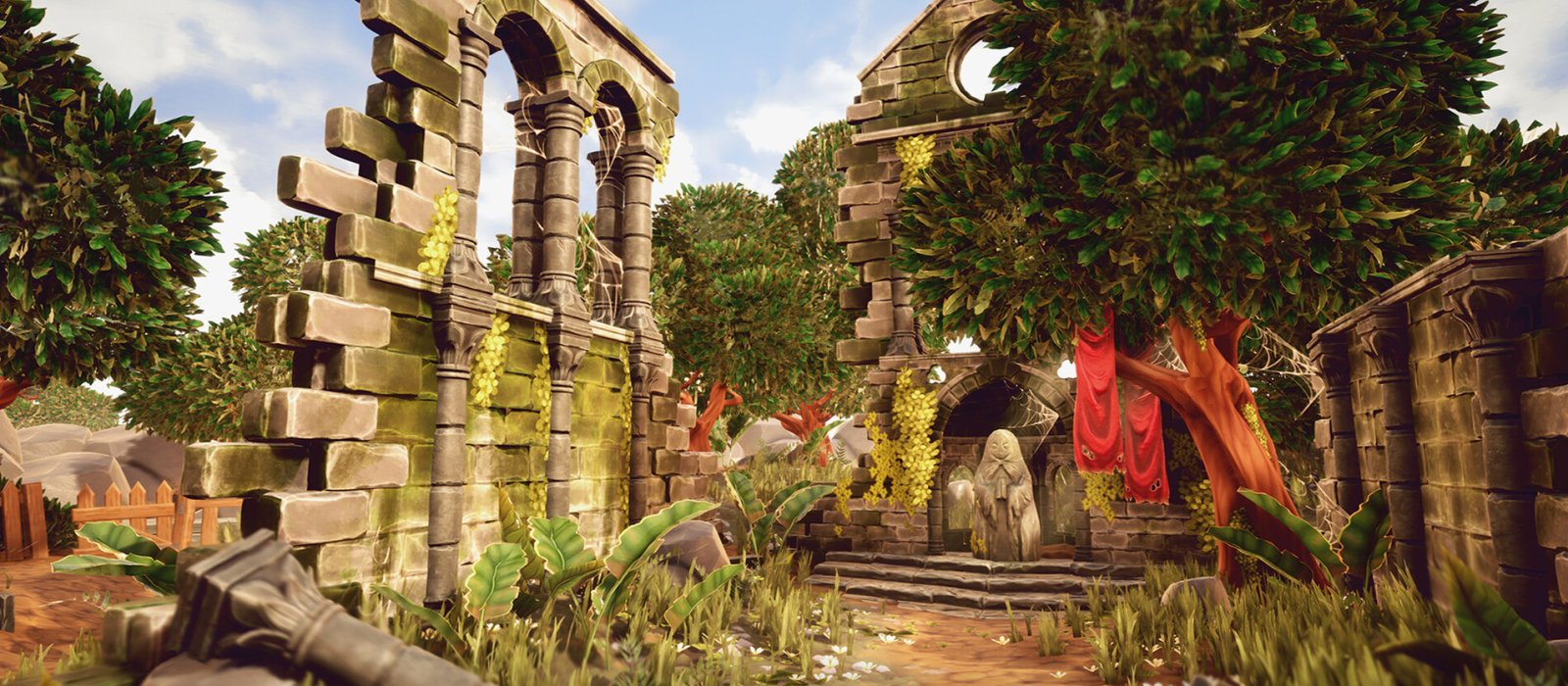
Work by Madi Riley
Staff
Coming from companies like Square-Enix and Octopus 8 Studios, you’ll benefit from your tutors’ experience working on titles like Hitman, League of Legends, World of Warcraft and Final Fantasy XII.
Some members of staff only teach on specific modules, and your course might not feature every staff member who teaches on the course.
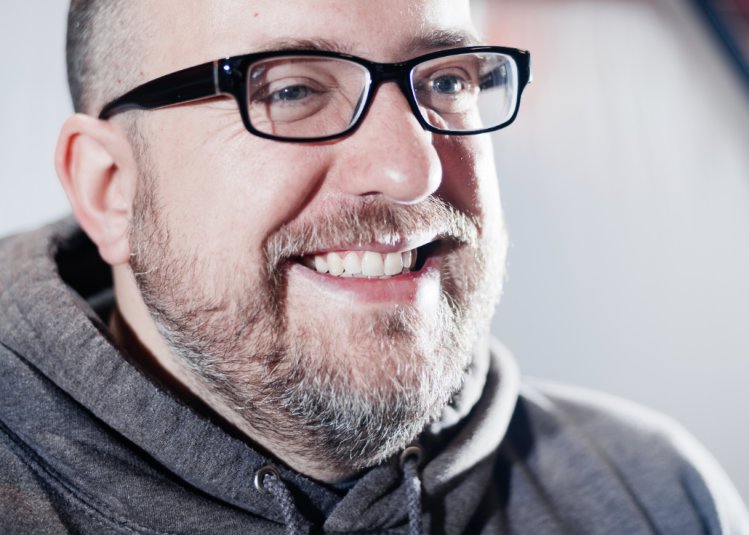
Dr Douglas Brown
Dean of the Faculty of Screen, Technology & Performance
Formerly employed by international games developer and publisher Square-Enix and credited on several...
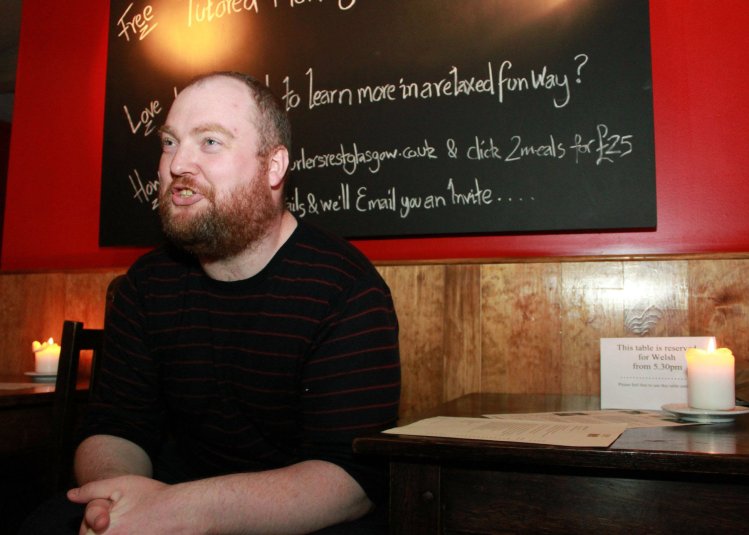
Brian McDonald
Head of Games & Head of Games Incubation
Brian McDonald is Head of Games and the Games Incubator Programme at Falmouth University. Brian h...
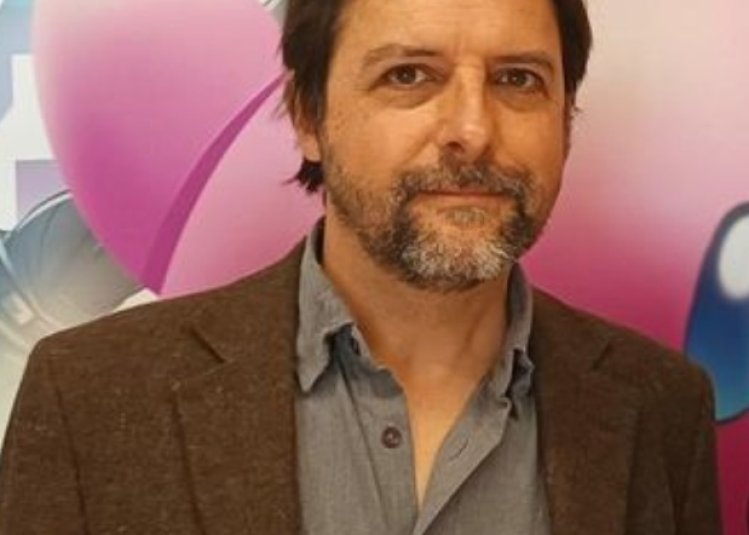
Dr William H Huber
Associate Professor of Game Studies
Dr William Huber studies videogames, new media and digital/ludic culture. Currently Associate Profes...
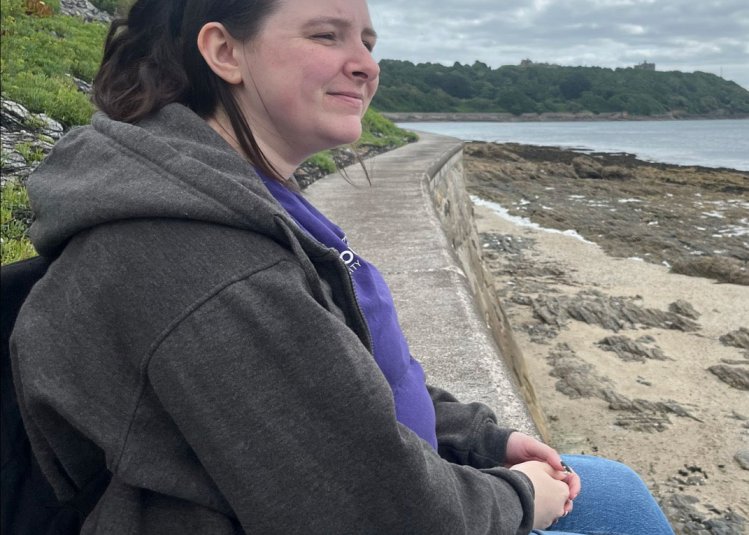
Lucy Stent
Game Programming and Game Development Foundation Lecturer
Lucy has been at Falmouth University since 2016. during her years here she has won many scholarships...
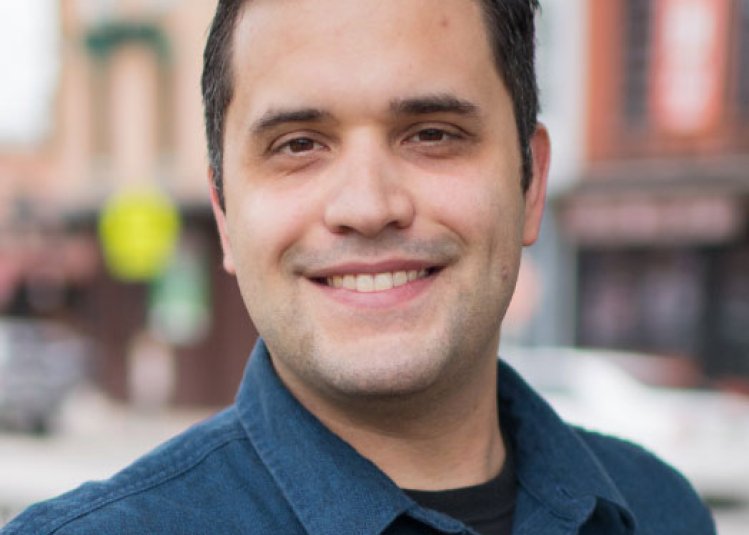
Dr Tony Pellicone
Senior Lecturer
Tony Pellicone is a Senior Lecturer in Game Design with the Falmouth Games Academy. His work focuses...
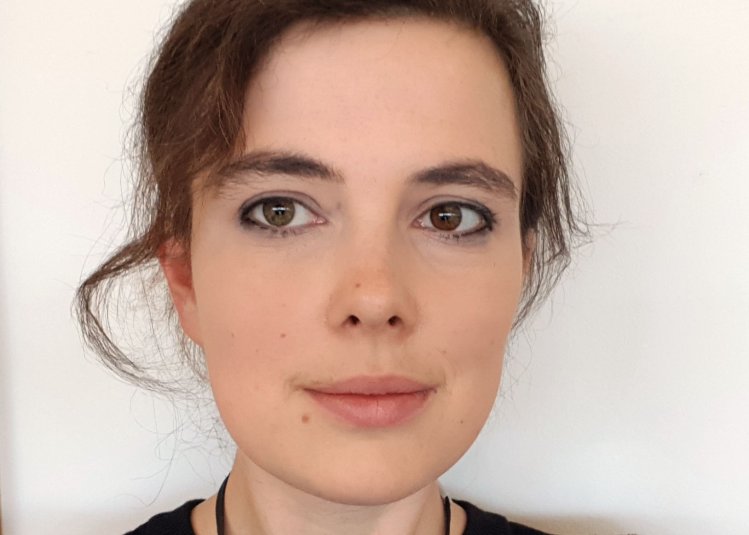
Phoebe Herring
Senior Lecturer
Phoebe Herring joined Falmouth University as a lecturer in BA(Hons) Game Art after freelancing on a ...
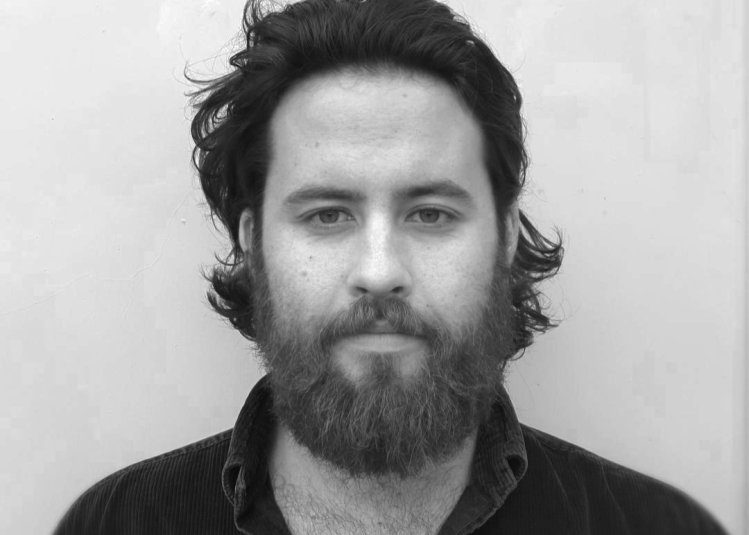
Jeremy West
Associate Lecturer, Game Development BA(Hons)
A graduate from Falmouth's Games Academy, Jeremy has spent the last six years both studying and maki...
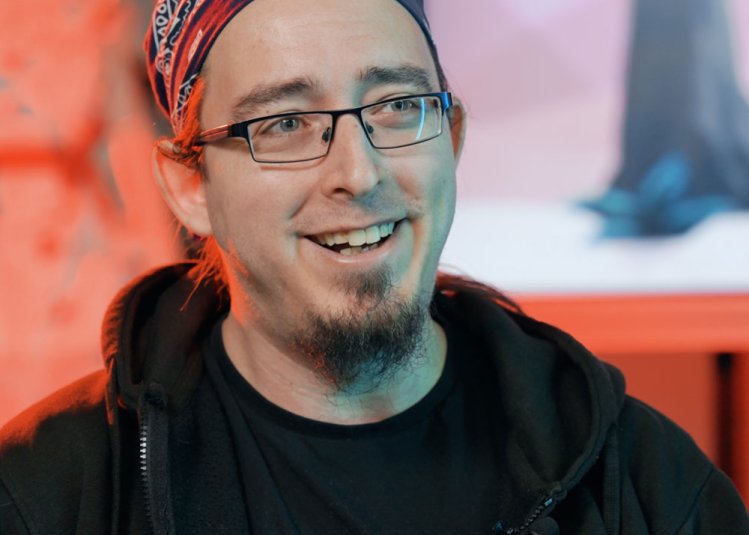
Dr Michael Scott
Head of Computing and Associate Professor of Computer Science Education
Dr Michael Scott is the Head of Computing and Associate Professor of Computer Science Educ...

Dr Che Wilbraham
Lecturer: Games
As a self-taught, independent game developer, Ché’s background is in the arts. He sees himself ...
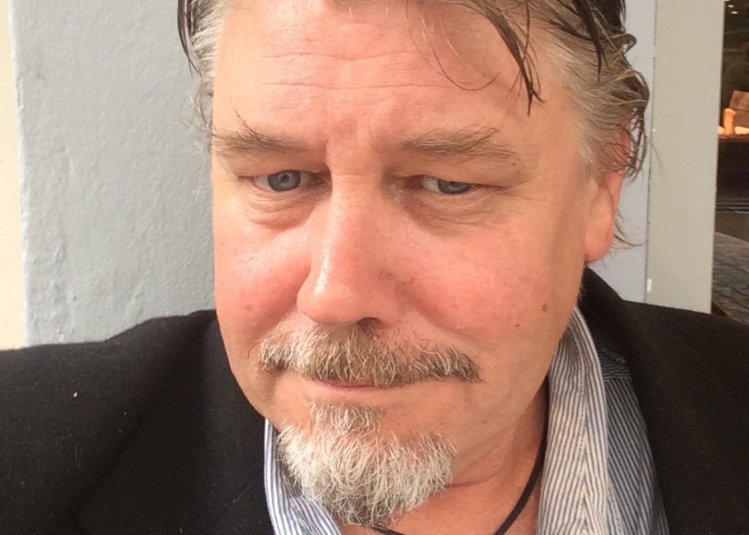
Pete Shepherd
Associate Lecturer (Audio)
Having been involved in the music industry for the last 30 years, initially as a player/performer bu...
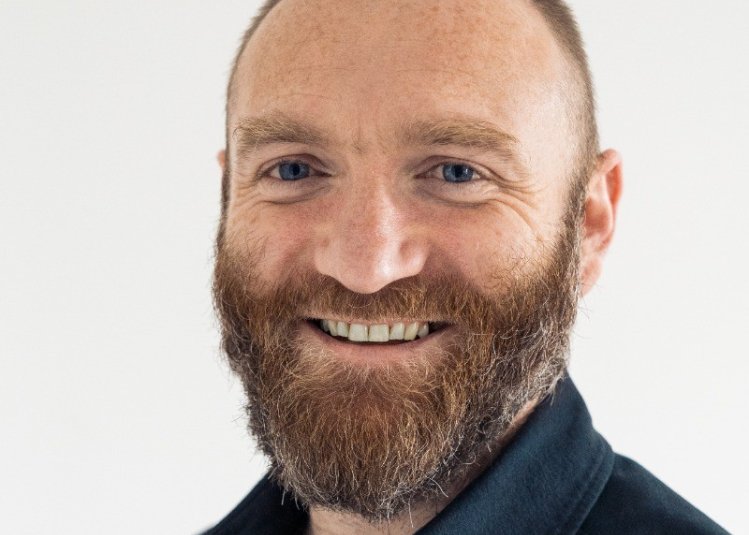
Richard Milligan
Senior Lecturer: Game Animation
Richard is an Animator, Developer and Lecturer who joined Falmouth University in 2016. After spendin...
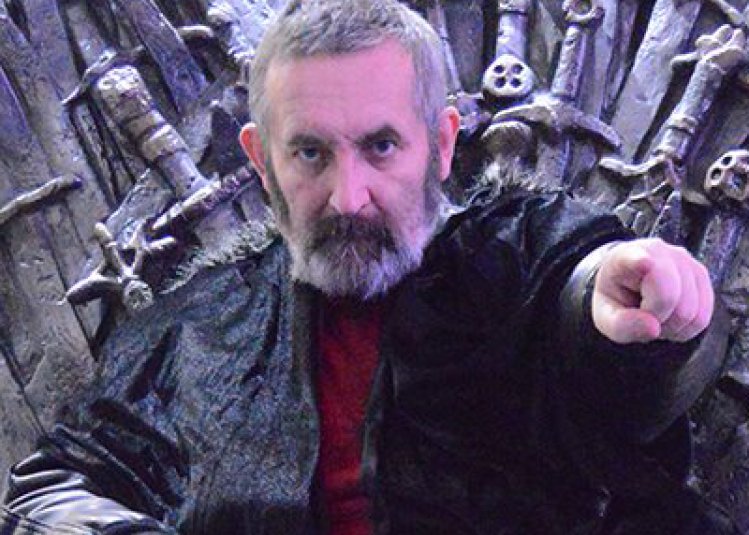
Terry Greer
Senior Lecturer in Game Design
After starting out life as a zoo keeper at London Zoo, Terry has worked for over thirty years in the...

Dr Jeff Howard
Associate Professor of Games and Occulture
Dr Jeff Howard is a scholar of occulture and esotericism. He works as Associate Professor of Games a...
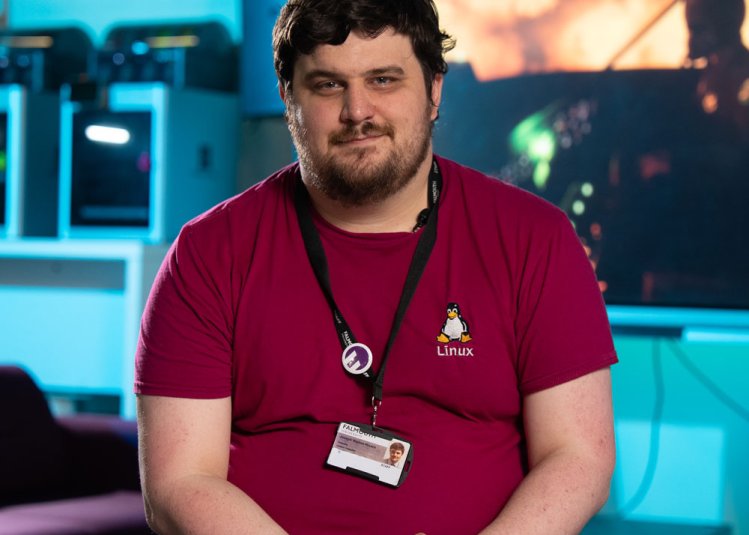
Dr Joseph Walton-Rivers
Course Leader: Computing
Joseph Walton-Rivers is the Course Leader for Computing within the Games Academy. He joined the univ...
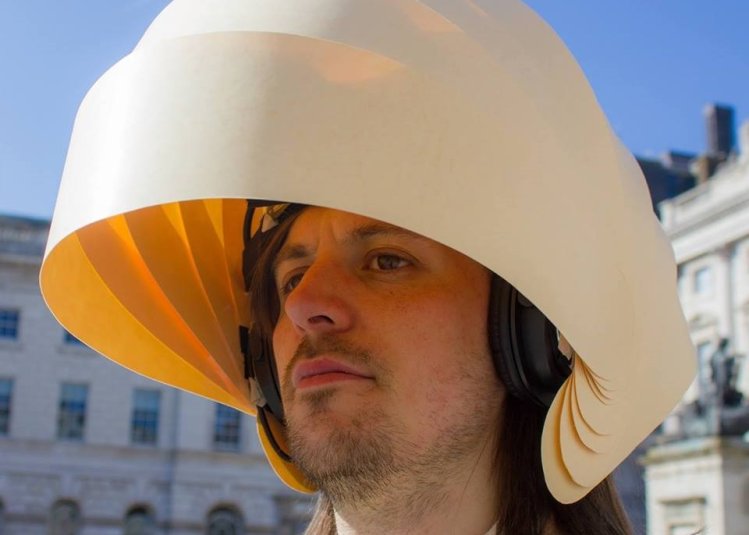
Tim Phillips
Lecturer
Tim joined Falmouth University in 2018 as a game designer in the computational creativity research g...

Lee Montgomery
Course Leader
Lee joined Falmouth’s Games Academy as Course Leader for Game Art in 2021. Prior to working in the...
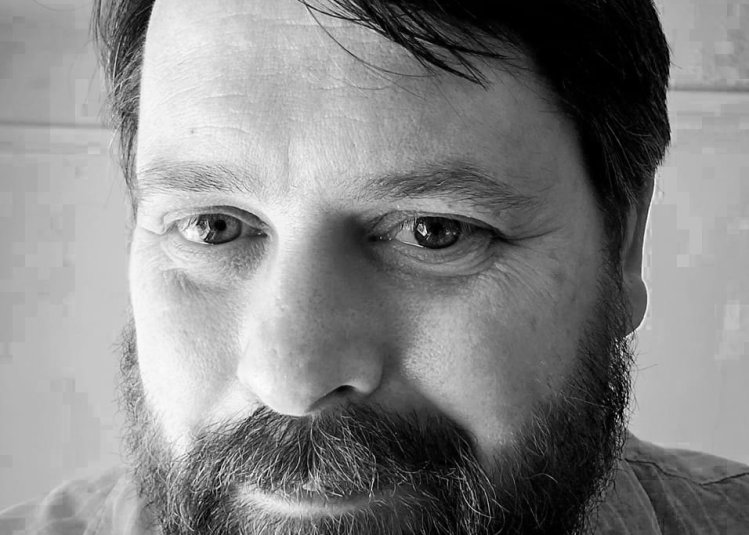
William Pryn
Senior Lecturer, Games Academy
A veteran 3D artist always looking out for new adventures and exploring new realms of possibility us...
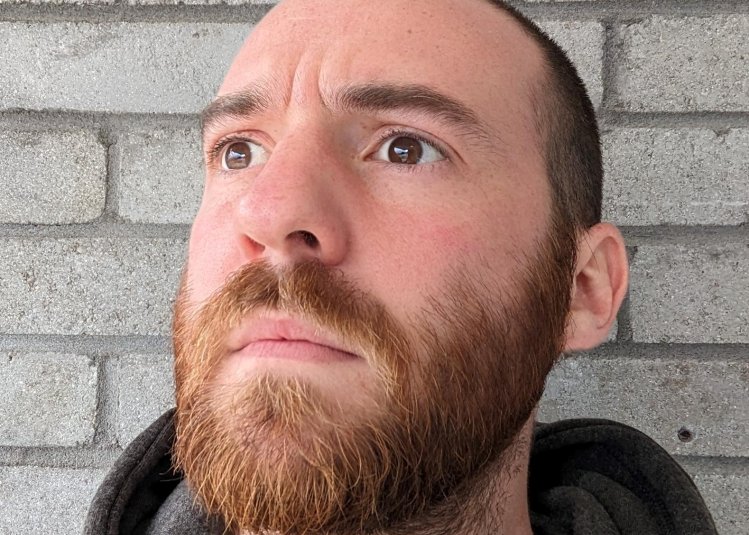
Ethan Bradley
Senior Technician, Games Academy
Ethan joined Falmouth University’s Games Academy as a Technician in 2021, bringing with him a mult...

Louise Crouch
Senior Technician, Games Academy
Louise graduated from Falmouth University in 2022 with a Masters degree in Game Art. She has develop...
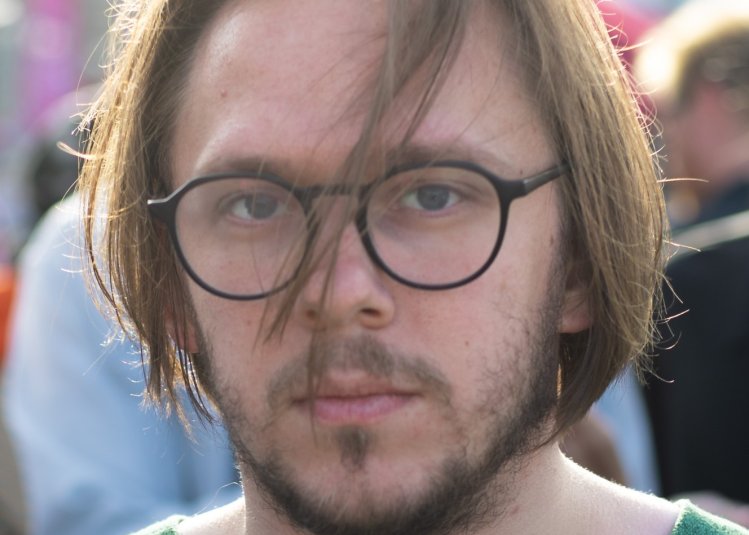
Byron Crowhurst
Senior Technician
Byron Crowhurst is a Senior Technician at the Games Academy at Falmouth University. Byron began work...
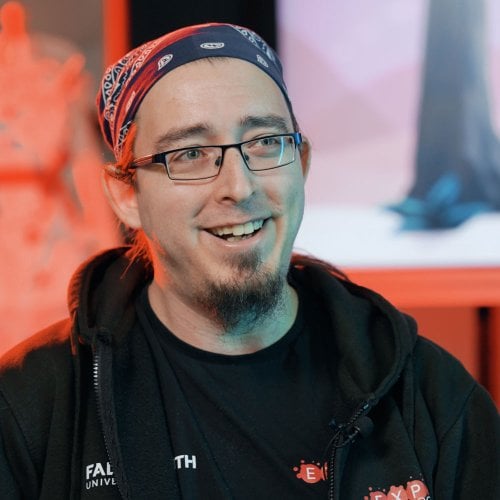
Got a question about this course?
If you want to know more about the course structure, our application requirements or what our graduates have gone on to achieve, our friendly course team is here to help.
Chat to Michael
'Learning the development process is essential and teaching us to make actual finished games that were sellable is incredible.'
- Alex Bridge, graduate and Senior Cinematic Artist at Creative Assembly
Careers
Our graduates have worked as:
-
Level Designers at Supermassive Games, Mediatonic and King
-
Animator at Creative Assembly
-
Game Designer at Rare
-
Games Writers at Hangar 13 and Playground Games
-
Producer at Rocksteady Studios
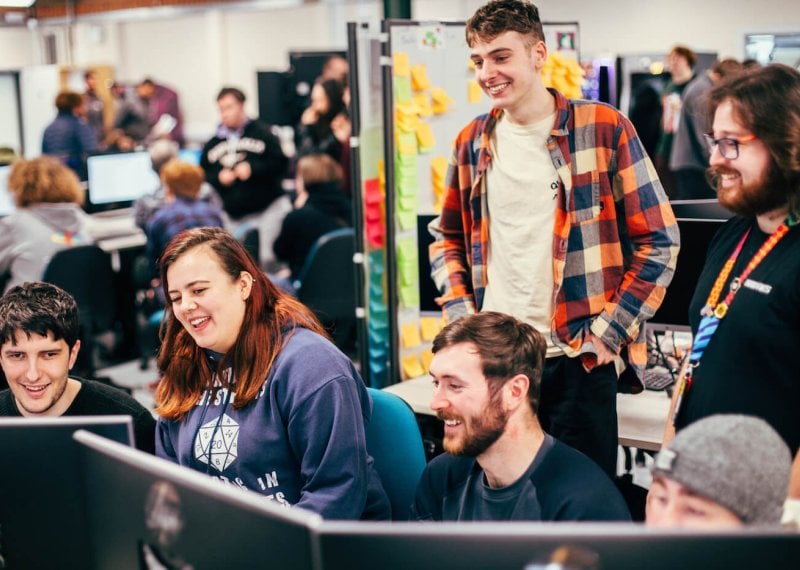
Gaming is the fastest-growing form of entertainment, with over 2.5 billion video gamers globally.
How to apply
Ready to apply for 2026?
You can apply for our undergraduate degrees via UCAS. You'll need our university UCAS code (F33) as well as your course code (which you'll find on your course page) for your application.
Applying as an international student?
There are a number of different ways to apply to study at Falmouth as an international student. Find out how you can become part of our creative community.
| Course route | UCAS code |
|---|---|
| Game Development: Art BA(Hons) three year degree | W281 |
| Game Development: Art BA(Hons) with Integrated Foundation Year | FY02 |
| Game Development: Art BA(Hons) with professional placement | PY29 |
| Course route | UCAS code |
|---|---|
| Game Development: Design BA(Hons) three year degree | W284 |
| Game Development: Design BA(Hons) with Integrated Foundation Year | FY28 |
| Game Development: Design BA(Hons) with professional placement | PY31 |
| Course route | UCAS code |
|---|---|
| Game Development: Programming BA(Hons) three year degree | W285 |
| Game Development: Programming BA(Hons) with Integrated Foundation Year | FY30 |
| Game Development: Programming BA(Hons) with professional placement | PY33 |
| Course route | UCAS code |
|---|---|
| Game Development: Writing BA(Hons) three year degree | W286 |
| Game Development: Writing BA(Hons) with Integrated Foundation Year | FY31 |
| Game Development: Writing BA(Hons) with professional placement | PY34 |

Application advice & interview information
Go to ToolkitFor starting your studies in 2026
UK applications: 14 January 2026 (for equal consideration)
Applications after the 14 January will be considered on a first-come, first-served as long as there are places available. Apply for this course now.
For starting your studies in 2027
UK applications: 13 January 2027 (for equal consideration)
International fee payers
International fee payers can apply throughout the year. But we recommend applying as early as possible, to make time for visa and travel arrangements.
We consider all applications on their own individual merit and potential. We invite all applicants to an interview day or audition to give them the opportunity to demonstrate this along with what inspires and motivates them in their field. Applicants will also be able to show their portfolio or give a performance depending on the course. We welcome applications from all subject backgrounds, whether you’ve specialised in STEM, the arts or humanities. Find out more about our Entry Requirements here.
Course routes & entry requirements
BA(Hons) three year degree: minimum 64 UCAS Tariff points
BA(Hons) four year degree with professional placement: minimum 64 UCAS Tariff points
BA(Hons) four year degree with Integrated Foundation Year: 32 UCAS Tariff points
At Falmouth, we'll consider the equivalency of your specific qualifications against our entry requirements and support you through your application journey.
View our International Entry Requirements
Language requirements
For applicants whose first language is English we require you to have or be working towards GCSE English Language Grade 4 (C), or equivalent.
If English is not your first language you will need to meet the same standard which is equivalent to the IELTS Academic 6.0 overall score, with at least 5.5 in Reading, Writing, Speaking and Listening. We accept a range of in country equivalencies and approved tests.
If you need a student visa to study in the UK, you may need to take a recognised language test. You can read our English Language Requirements for more information.
Fees, costs & funding
Tuition fees
| Annual tuition fee | Student |
|---|---|
| £9,790 per year | Full-time UK |
| £19,950 per year | Full-time EU/international |
| £1,955 per professional placement year | Full-time UK and EU/international |
| £9,790 per Integrated Foundation Year | Full-time UK |
| £19,950 per Integrated Foundation Year | Full-time EU/international |
| Annual tuition fee | Student |
|---|---|
| £9,535 per year | Full-time UK |
| £17,950 per year | Full-time EU/international |
| £1,905 per professional placement year | Full-time UK and EU/international |
| £9,535 per Integrated Foundation Year | Full-time UK |
| £17,950 per Integrated Foundation Year | Full-time EU/international |
Tuition fees for September 2027 will be confirmed in summer 2026.
Tuition fees are set annually and are subject to review each year. The University may therefore raise tuition fees in the second or subsequent years of a course, in line with inflation and/or the maximum permitted by law or Government policy. Students will be notified of any changes as soon as possible.
The figures above don't include accommodation and living costs
Typical course costs
- £150 - Recurring annual costs (materials and books)
- £30-£150 - Headset with microphone
- £25-£100 - Webcam
- £300 - Optional study visits and placements for the course duration
- £1,500 approx. - Laptop or desktop computer
Specifications and costs of hardware and software are subject to change each year. Any materials or equipment you’ll need for your course will be outlined in your Welcome Letter.
Course costs for all Game Development BA(Hons) specialisms
Essential
The latest advice about which computers we recommend you buy for your course is available here: https://github.com/Falmouth-Games-Academy/ga-computer-advice#readme
Headset with Microphone
You will need a headset with a microphone for some classes. We recommend purchasing a highquality headset for your comfort. Manufacturers such as Sennheiser, SteelSeries, Razer, HyperX and Corsair are rated highly by our current students. These can cost between £30 - £150.
Webcam
You will need a webcam in some teaching. Manufacturers such as Logitech, Microsoft, and Razer are rated highly by our current students. These can cost between £25 - £100.
Internet Access
It is important that you secure sufficient access to the Internet as all materials are made available to you through our virtual learning environment. We recommend a fibre broadband connection if available, but a minimum of at least 5Mbps will be suitable for livestreaming content. If you have further questions, need more detailed advice or would like us to check the suitability of a particular model, then please email games.support@falmouth.ac.uk
Additional course costs for Game Development: Programming BA(Hons)
Consumable electronics
You must reserve a budget of at least £40 to purchase additional materials and electronic components for your individual creative computing project.
Additional course costs for Game Development: Art BA(Hons)
Essential
- Pencils- Royal & Langnickel sketching pencil set – approximately £5.56
- Sketchpad- Daler-Rowney A3 series, a spiral cartridge pad – approximately £10.40
- Sketchbook- Seawhite black cloth cover sketchbook 140gsm portrait A4 – approximately £7.49
- Pencil case- Derwent Canvas pencil wrap - approximately £9.99
- Grey-scale markers, students can either buy them as a set or individually. Sets range from £10 - £14. Individual markers are approx. £3.50
Optional
- Watercolour- Windsor & Newton Cotman watercolour paints-12 half pans – approximately £15.43
- Watercolour brushes- Pro Arte professional artist academy paint brushes (set of 5) – approximately £7.10
- Acrylics- Daler-Rowney system 3 acrylic paint introduction set – approximately £13.80
- Acrylic brushes- Pro Arte brush wallet series C hog – approximately £9.95
Additional typical course costs for Integrated Foundation Year pathway
- £250 for materials
- A laptop/desktop computer
- Adobe Creative Suite
To engage in the digital learning activity, although you will be able to access IT suites on campus, you will benefit from a laptop to access the platforms and tools we use. Depending on your subject, you may need a specific type of computer. If you're unsure about what you might need, please contact our course advisors.
Course equipment and costs
- Computer - £1,500
- Headset - £30-£150
- Webcam - £25-£100
Funding
For information about funding available, please visit our student funding pages.
Ask a student
What better way to find out about life at Falmouth University than by asking our current students?
From course details and academic support, to the social scene and settling in, our students are ready and available to answer any questions you might have. Simply set up your account, send them a question and they'll get back to you within 24 hours.
Similar courses
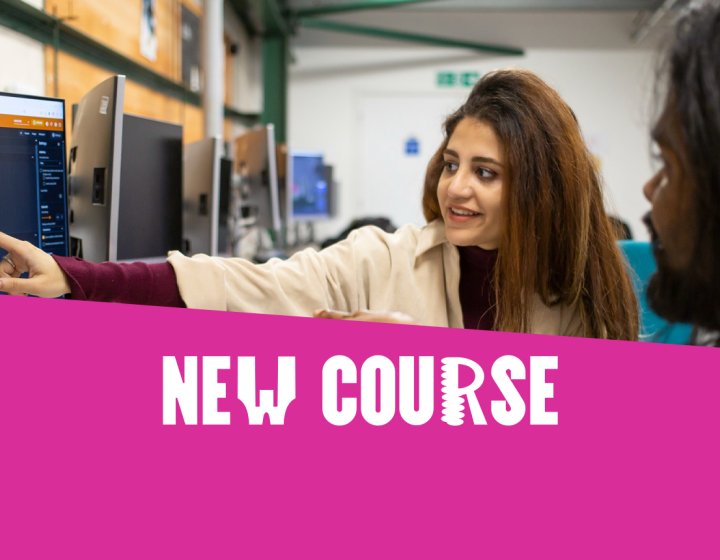
Artificial Intelligence BSc(Hons)
Artificial intelligence is transforming every corner of our world: from cars that drive themselves t...
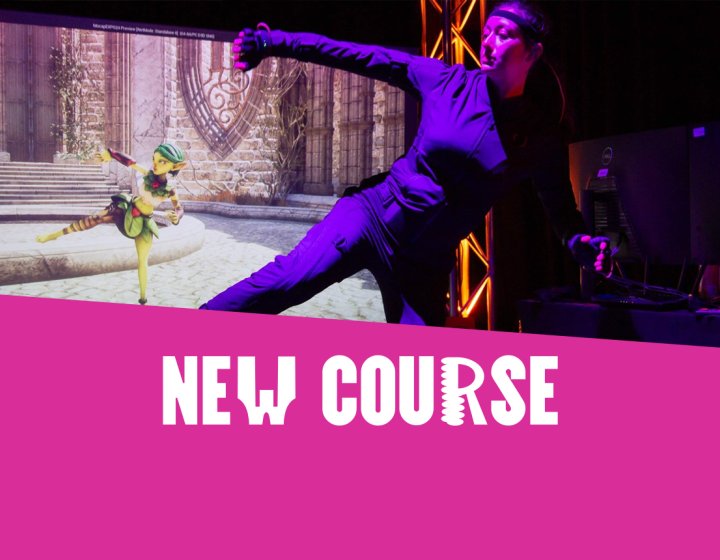
Creative Computing BSc(Hons)/BA(Hons)
Work across creative disciplines to explore creative coding, interactive systems, digital storytelli...
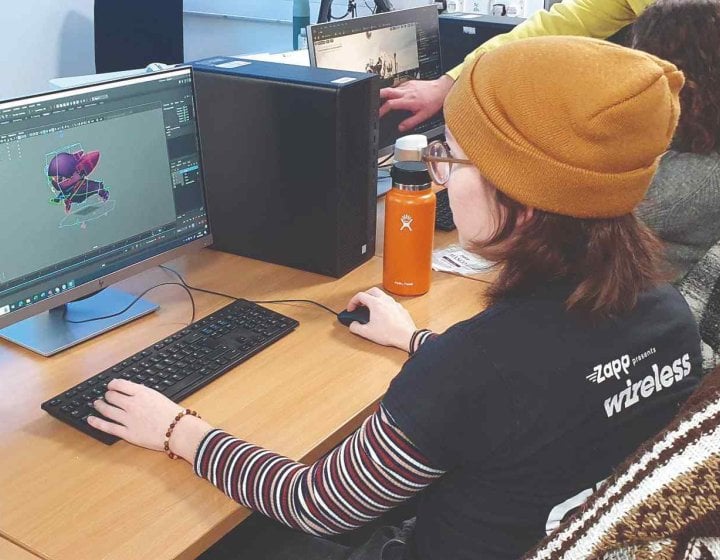
Game Animation BA(Hons)
Gain experience of working to a real-time animation pipeline and graduate with a rich portfolio of w...
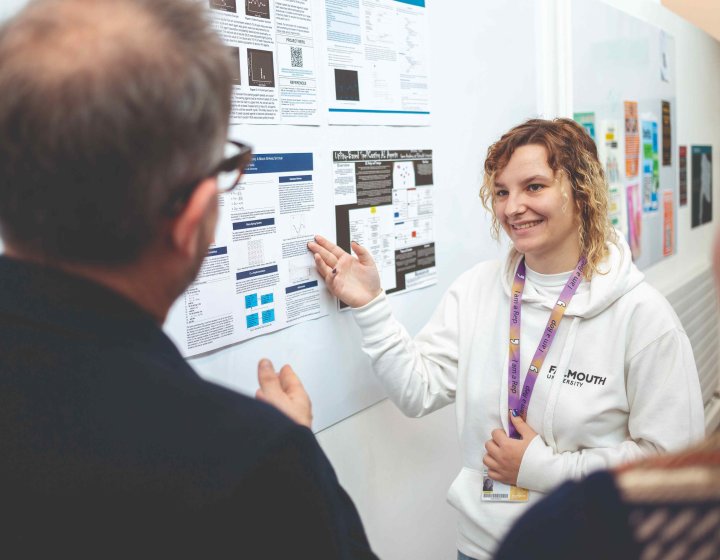
Computer Science BSc(Hons)
New immersive realities, data-rich interactions, automations and ever-more ubiquitous systems are sh...
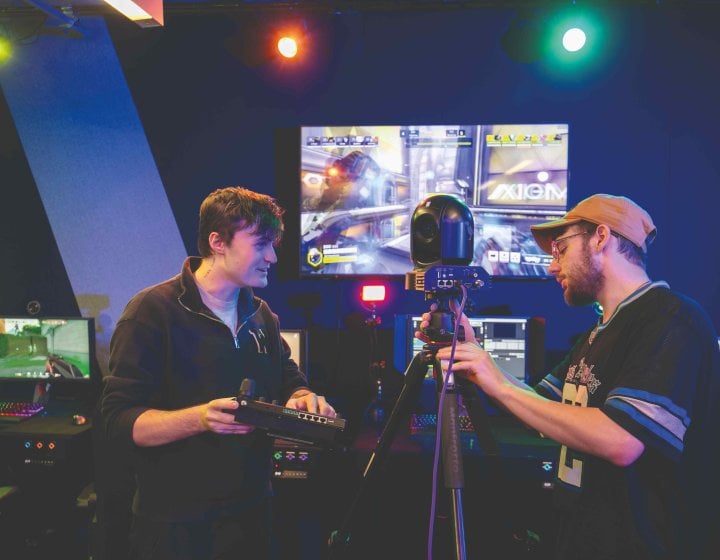
Esports & Livestreaming BA(Hons)
Immerse yourself in Esports culture on this degree, which offers a unique opportunity to be at the f...
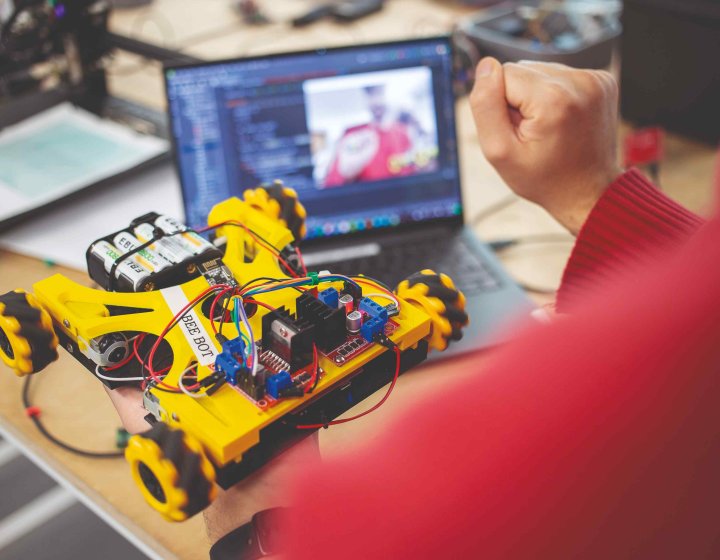
Robotics BSc(Hons)
Explore the world of artificial intelligence and create interactive robots that respond to the chall...
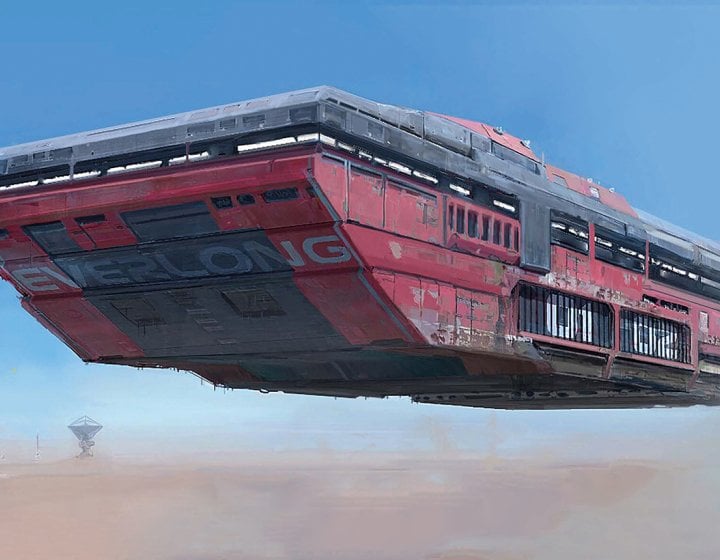
Game Art BA(Hons)
Work in multi-skilled collaborative teams and graduate as a confident, industry-ready game artist. ...
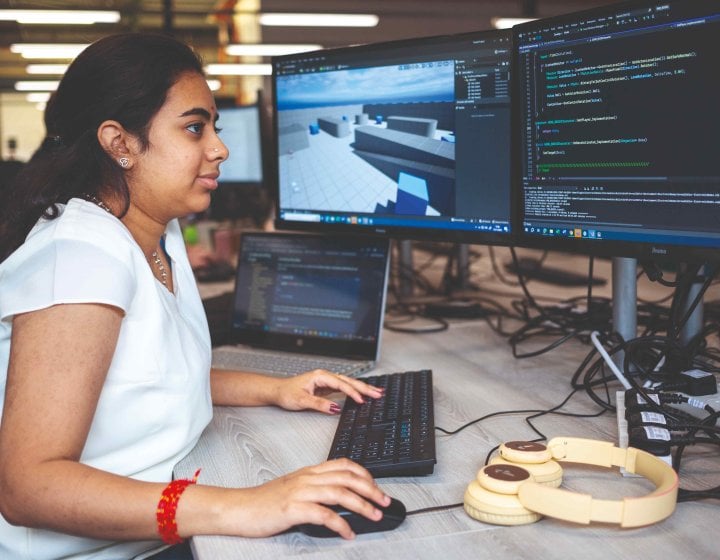
Computing for Games BSc(Hons)
Learn how to shape the games of the future by studying game development through the lens of computer...
Open Days and events
From visiting campus to online application advice, get all the information you need about joining our creative community.
Find an event
